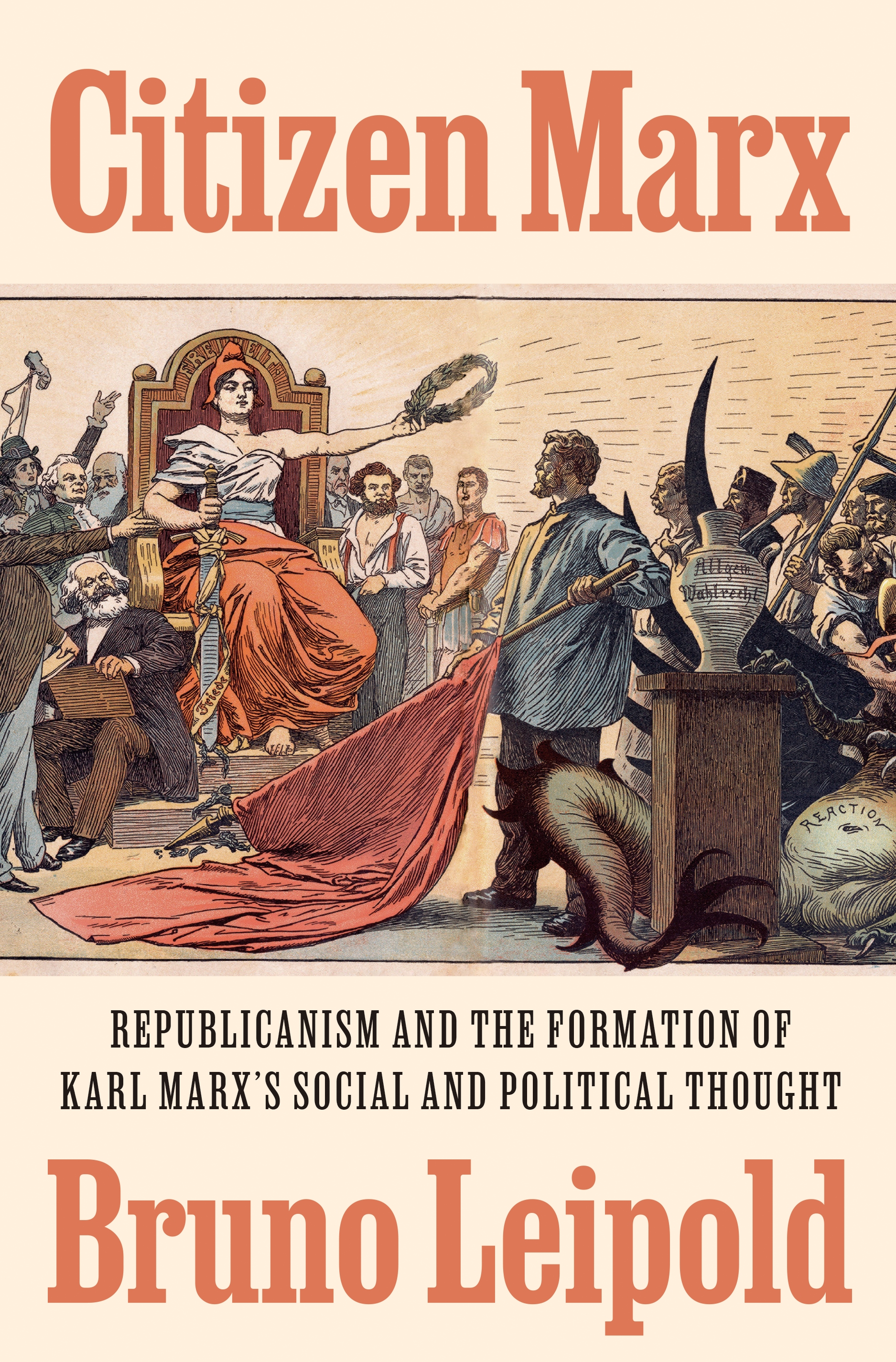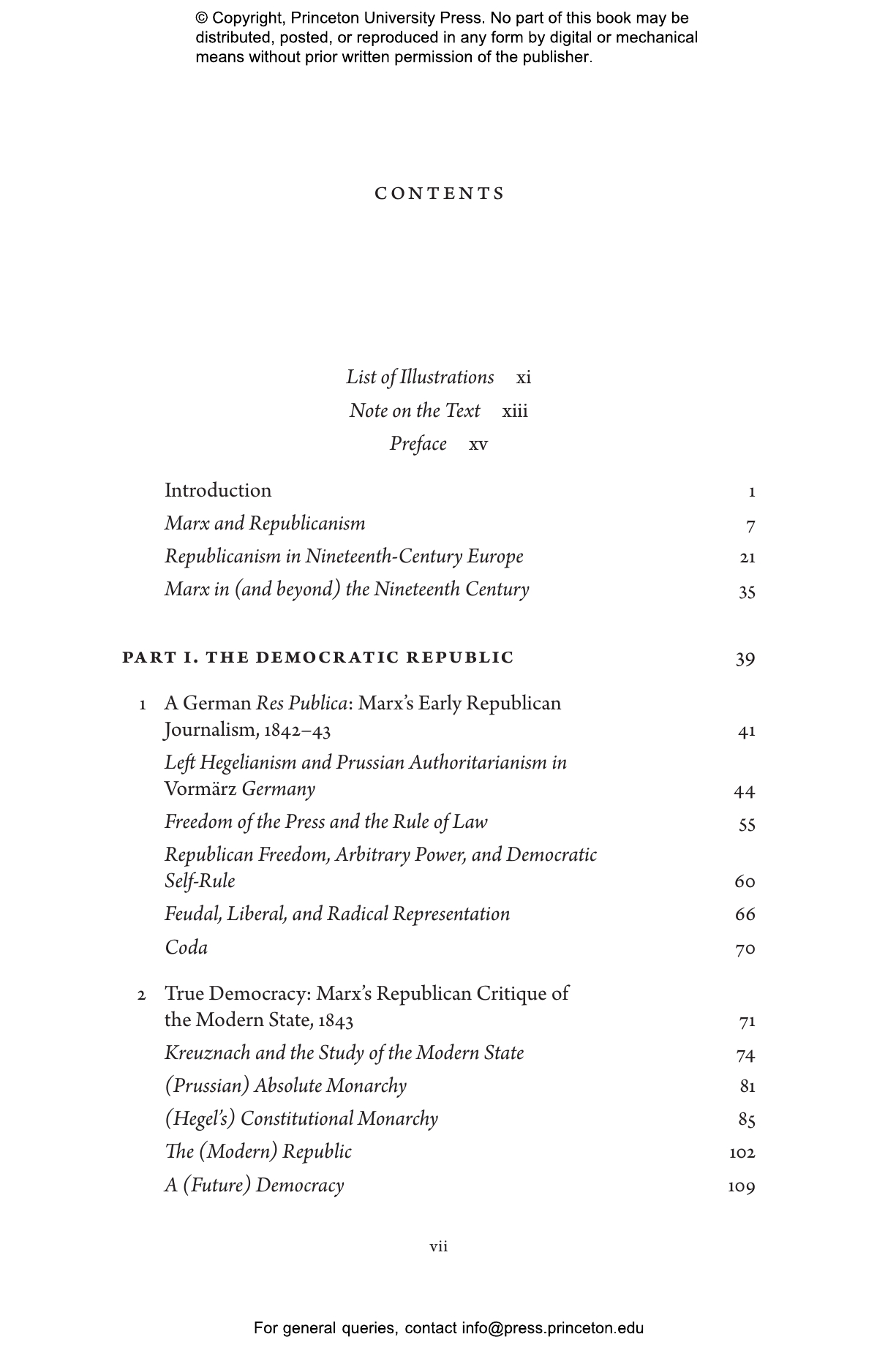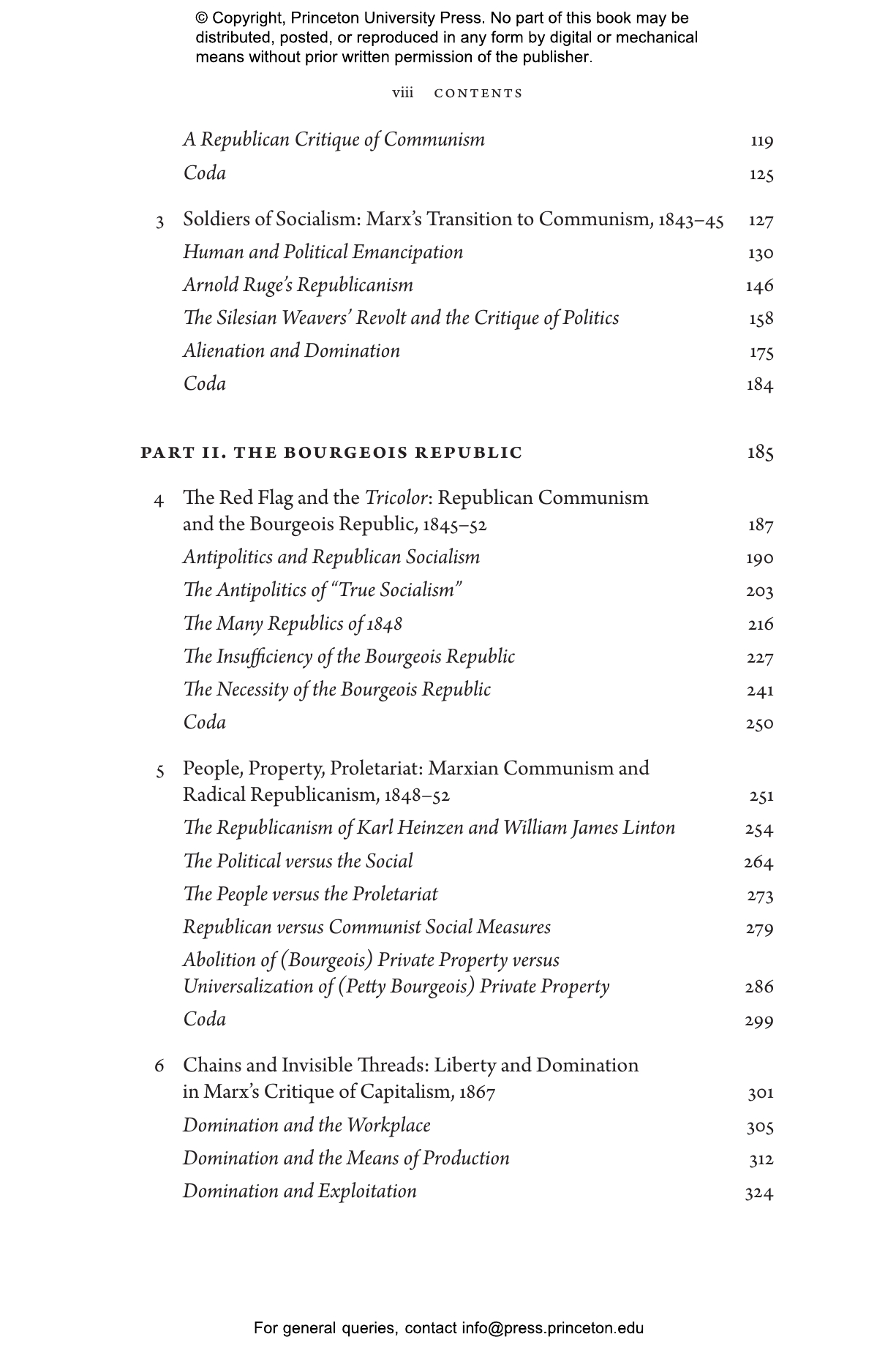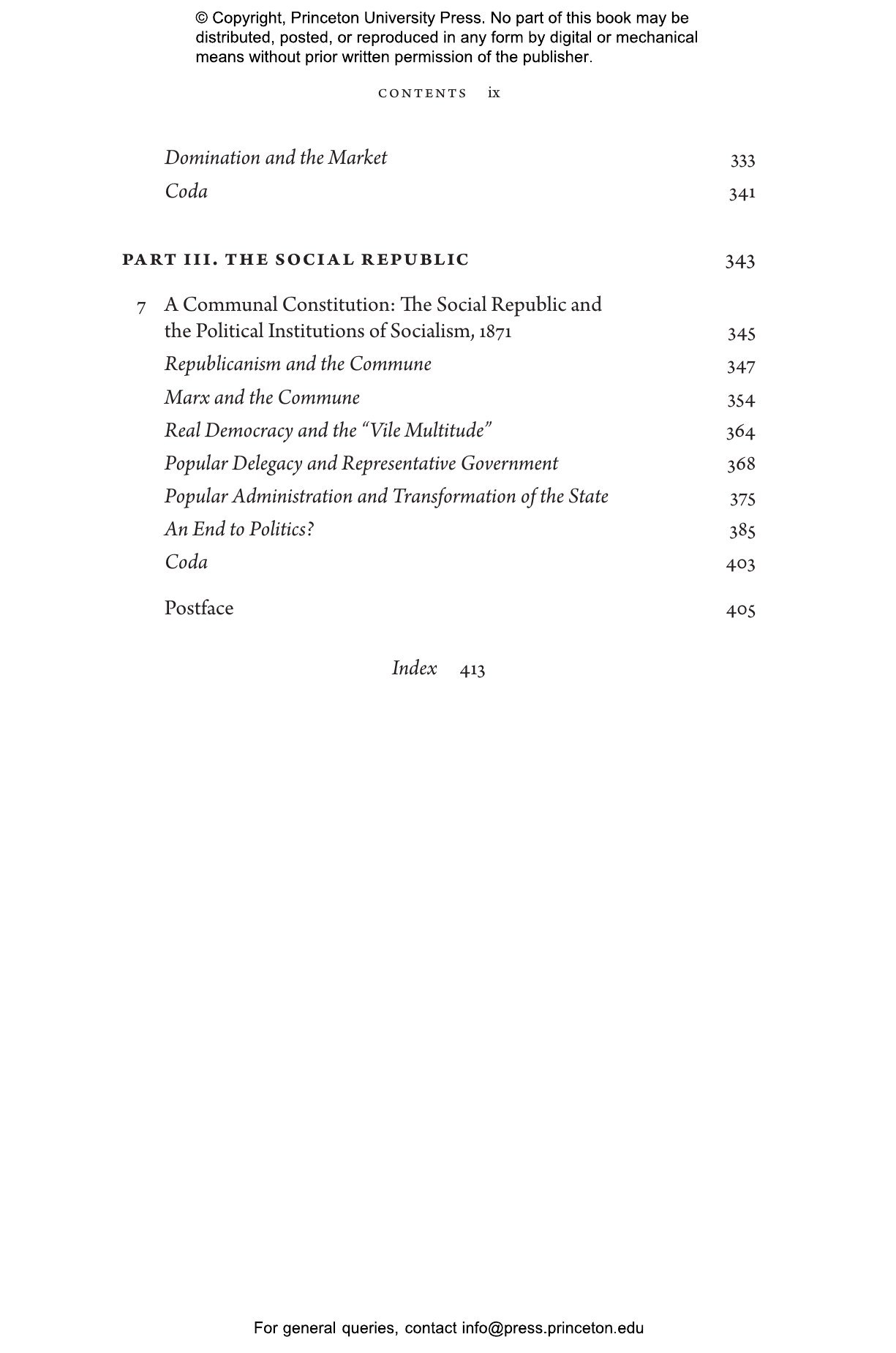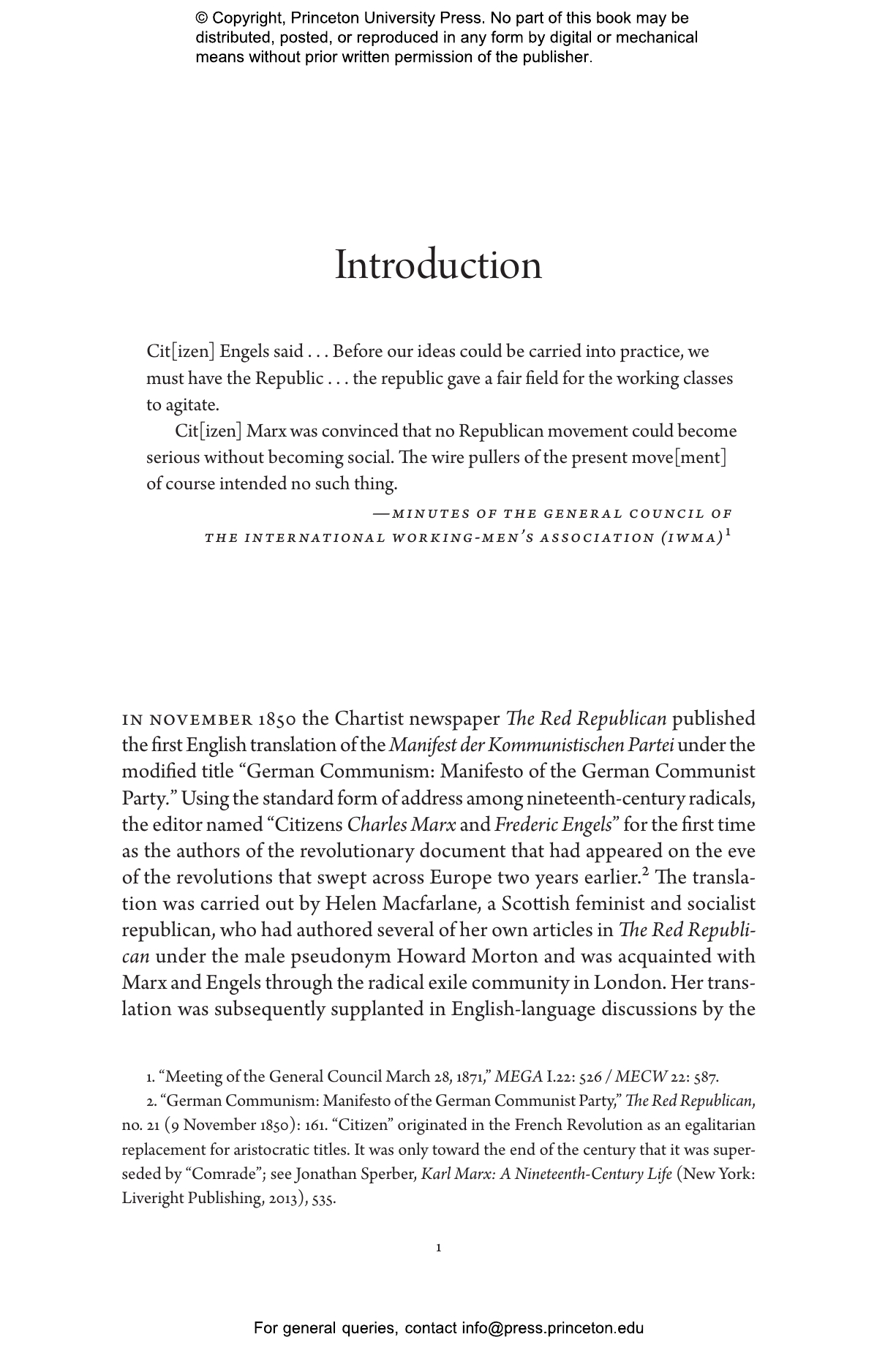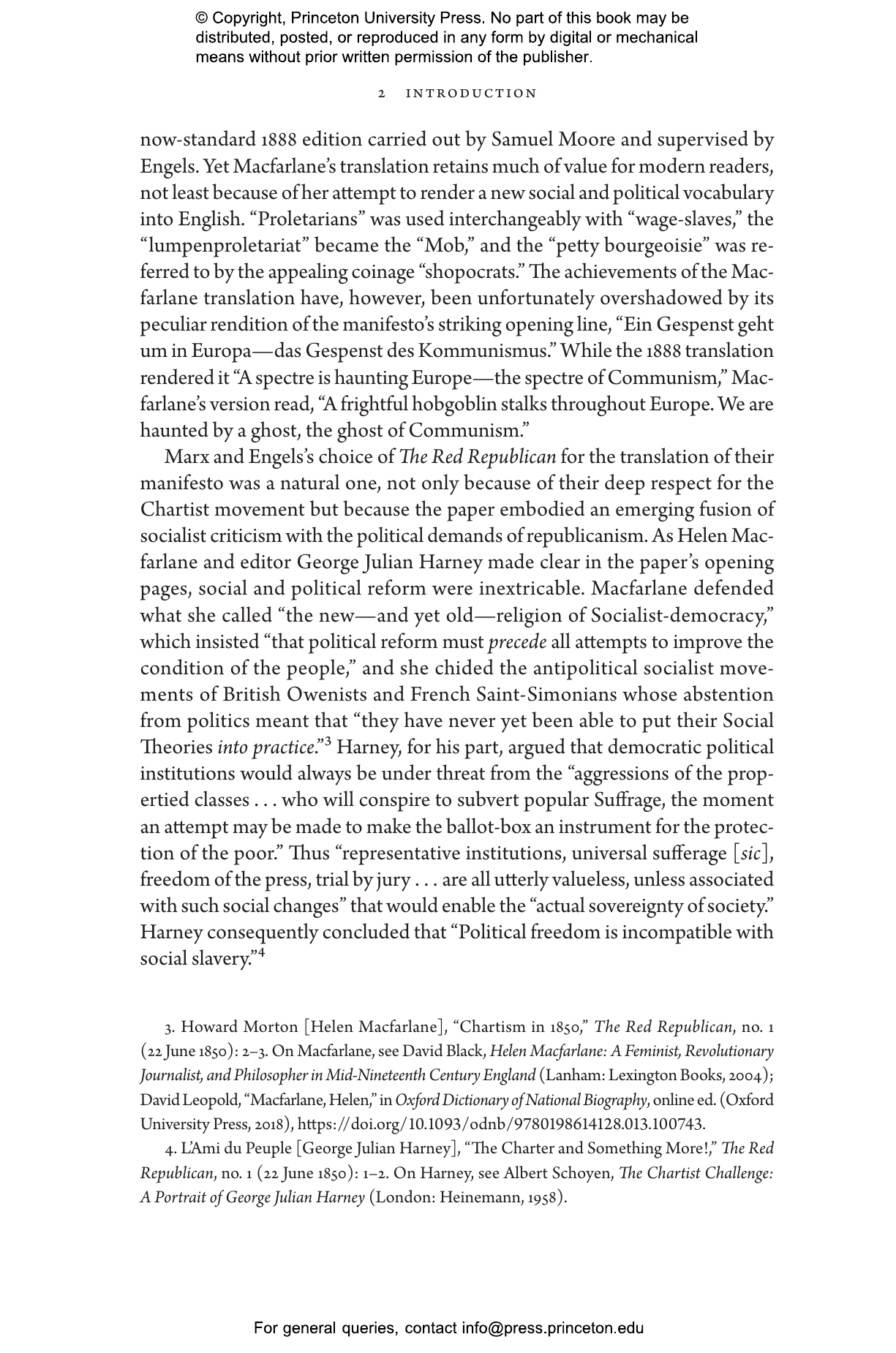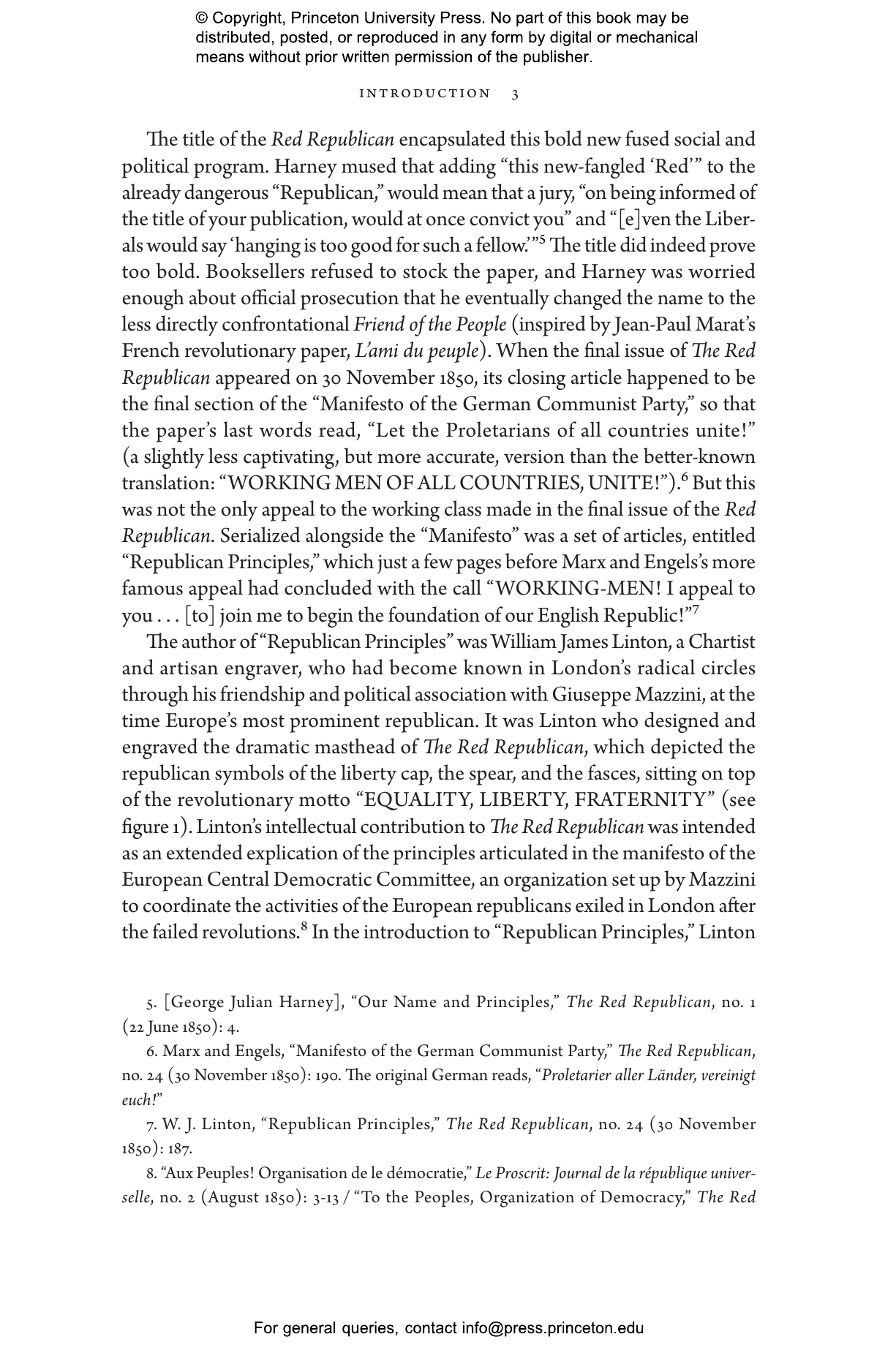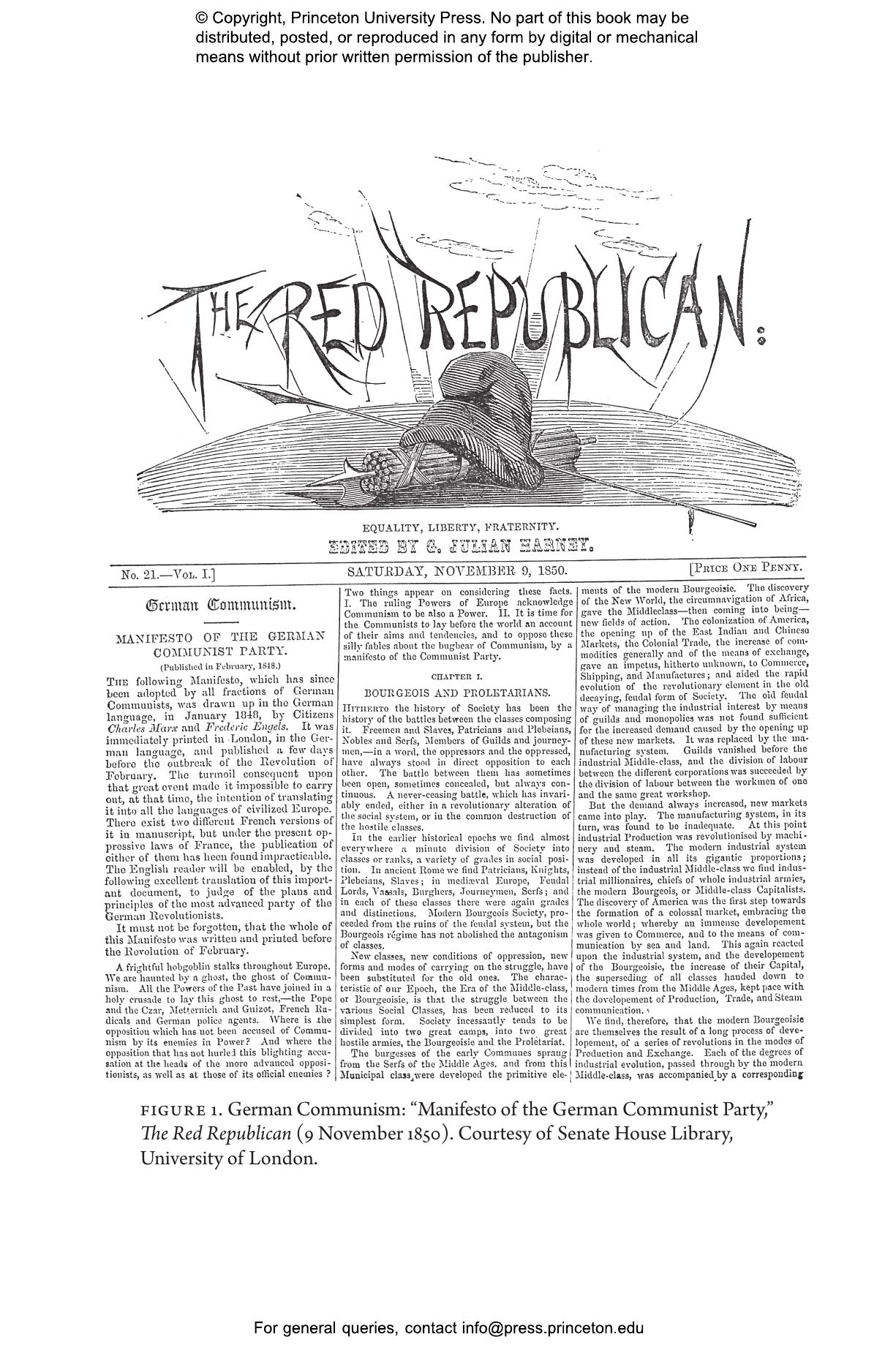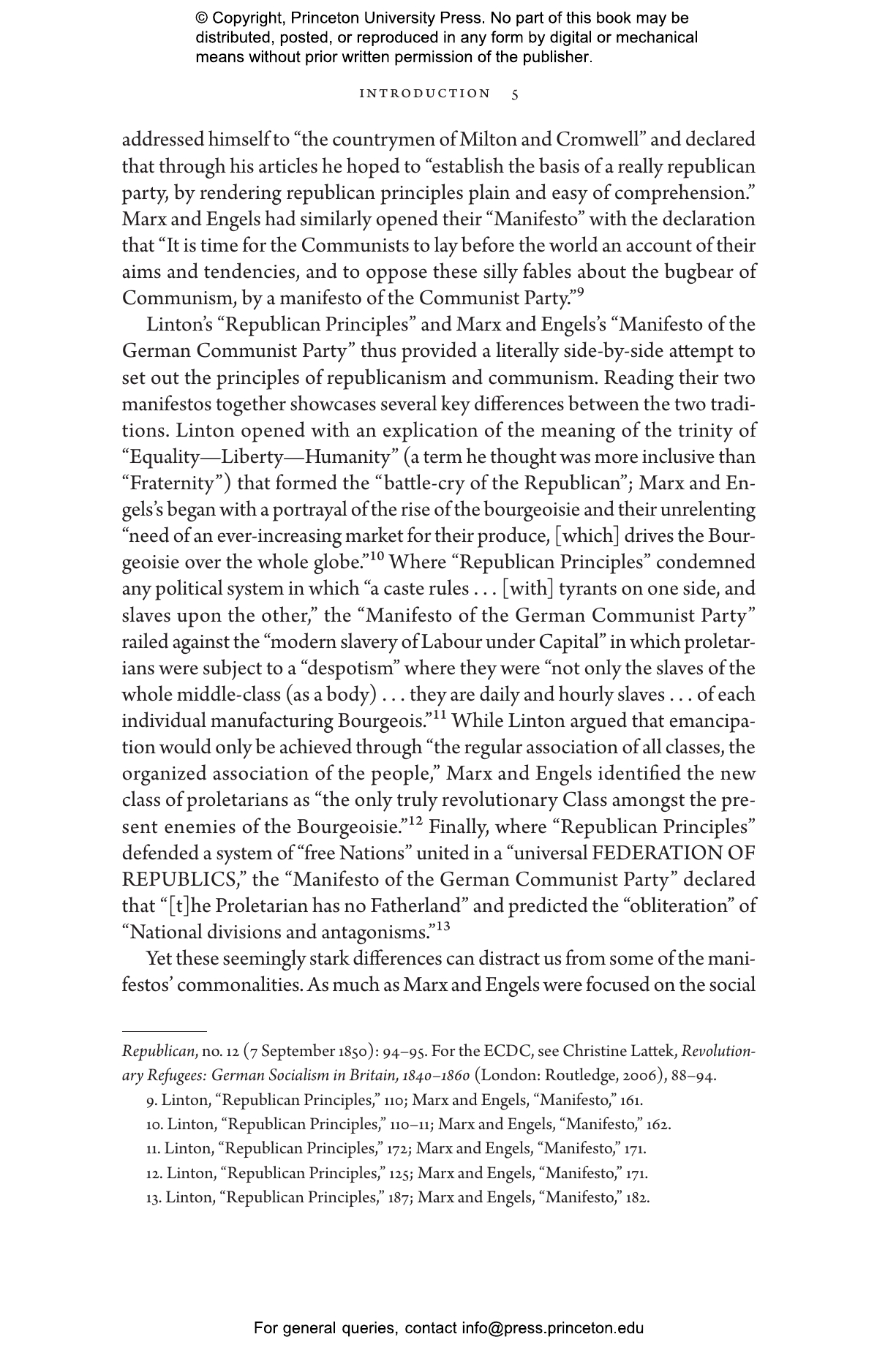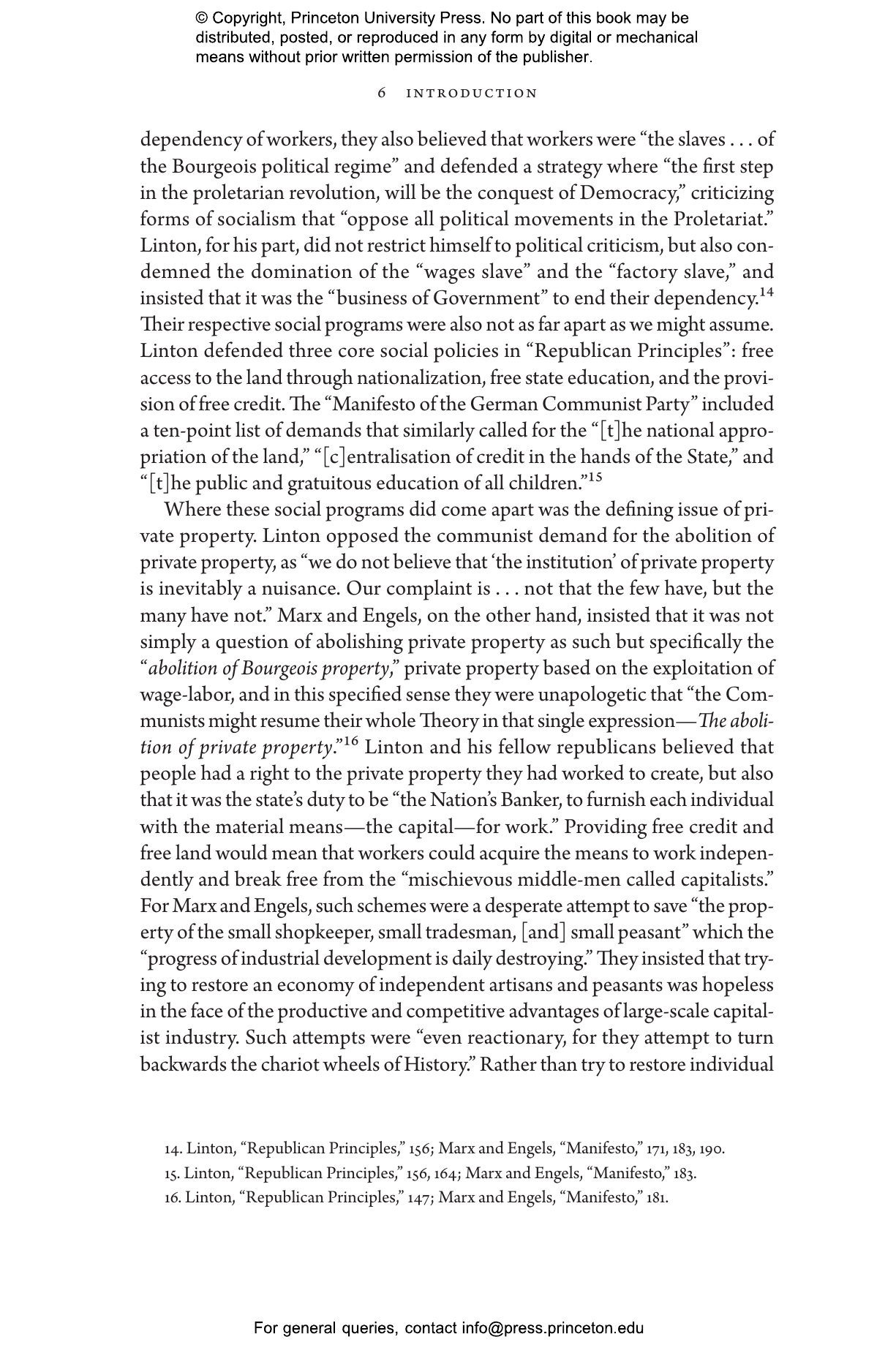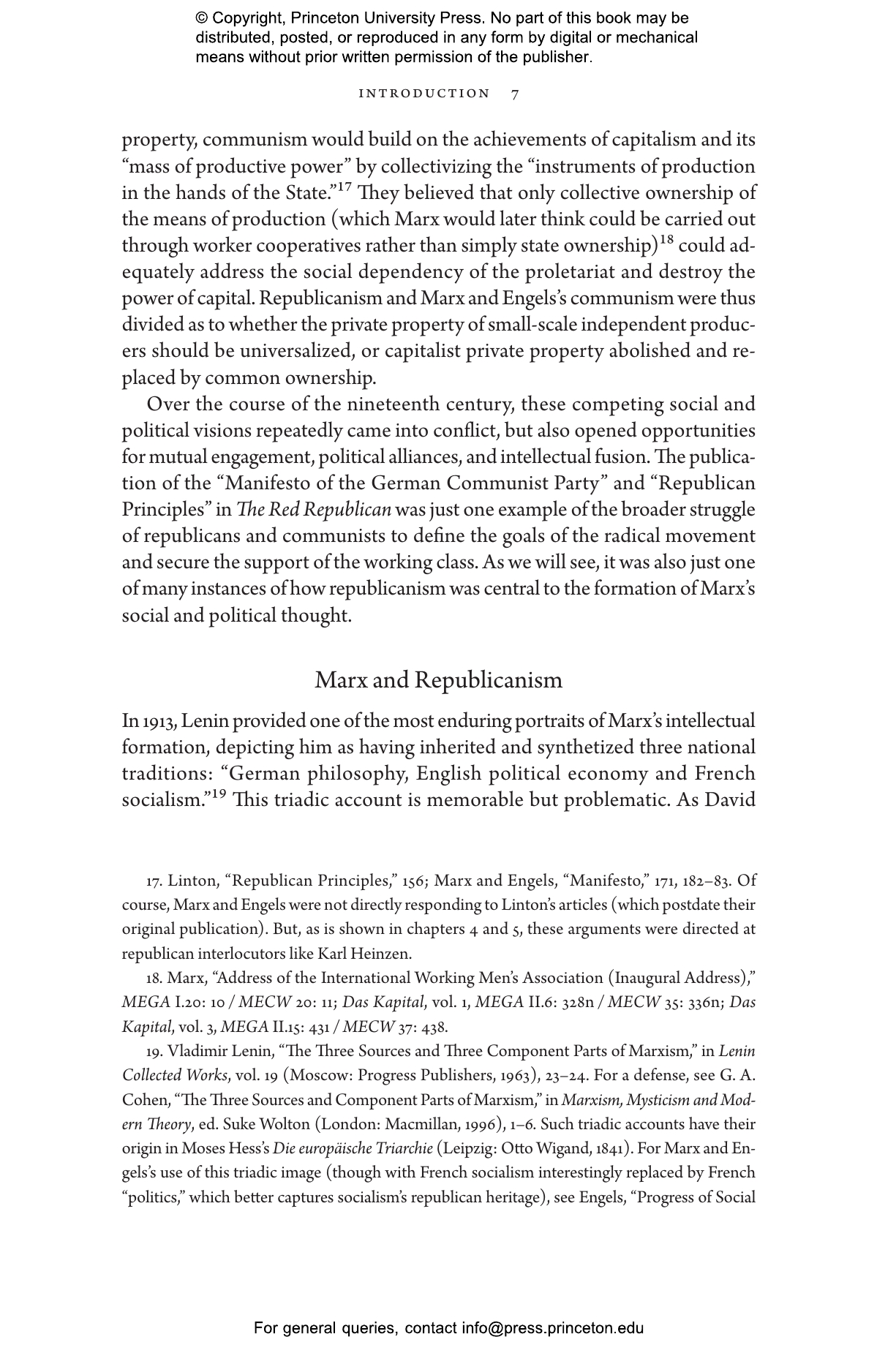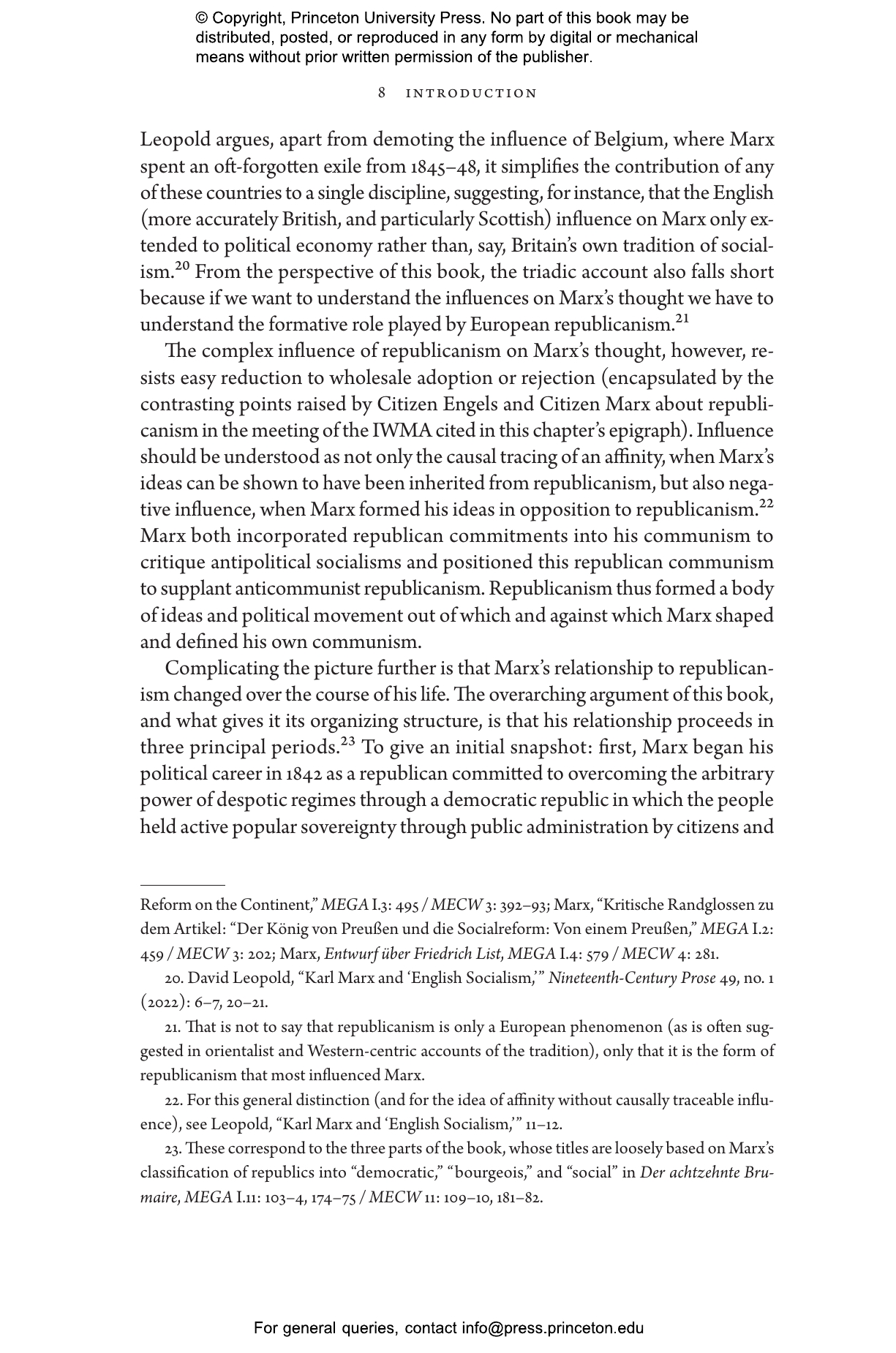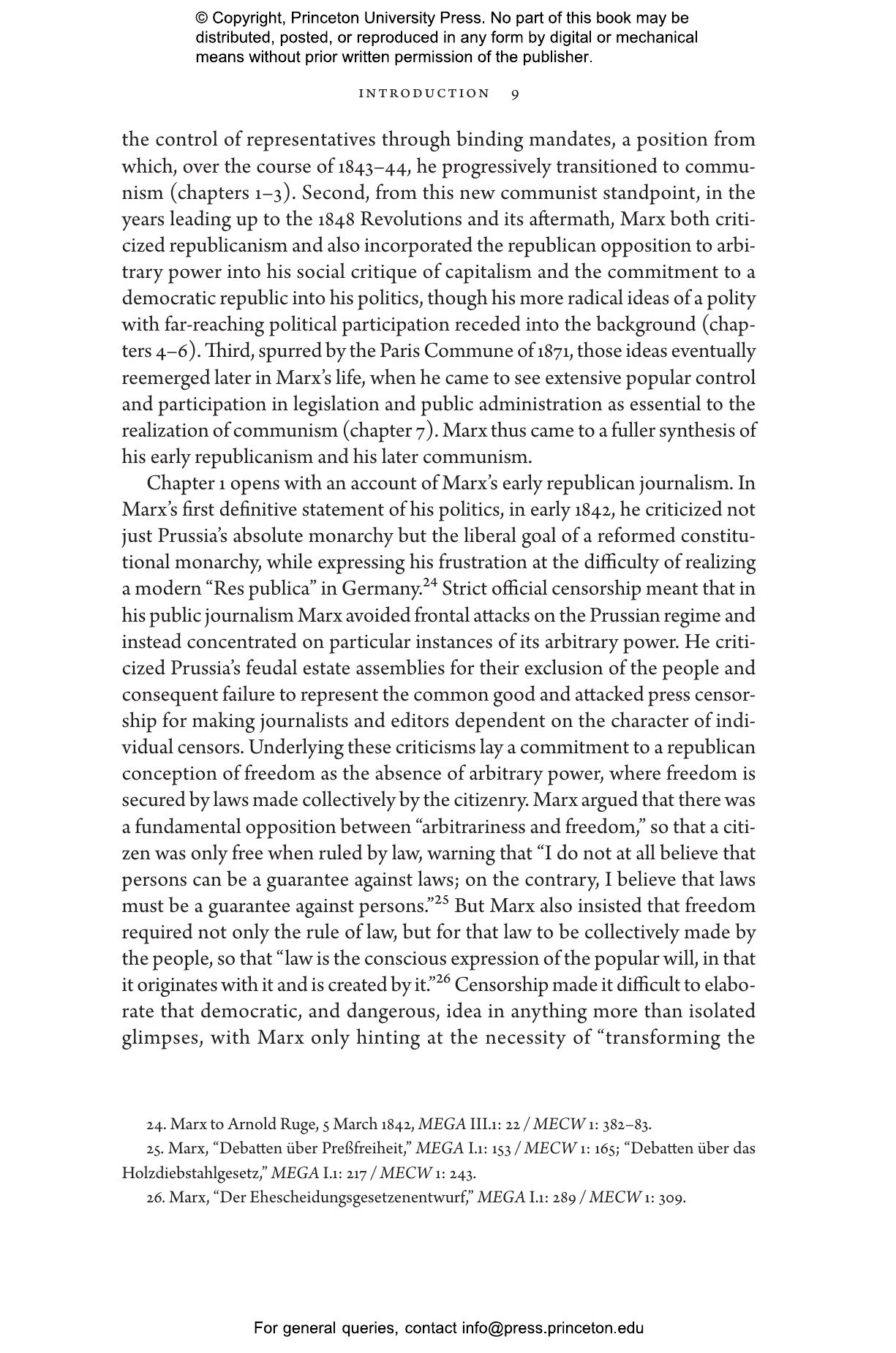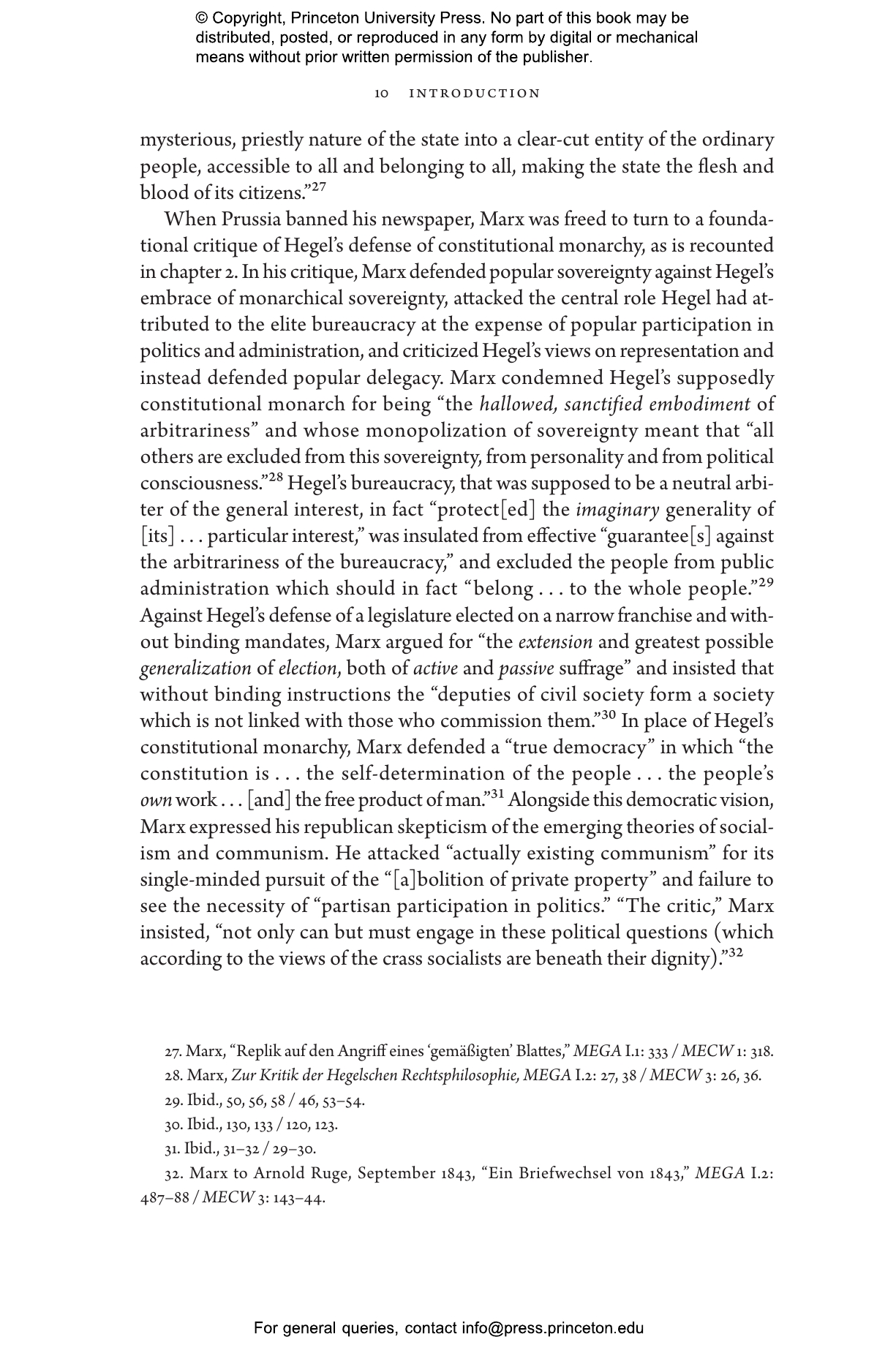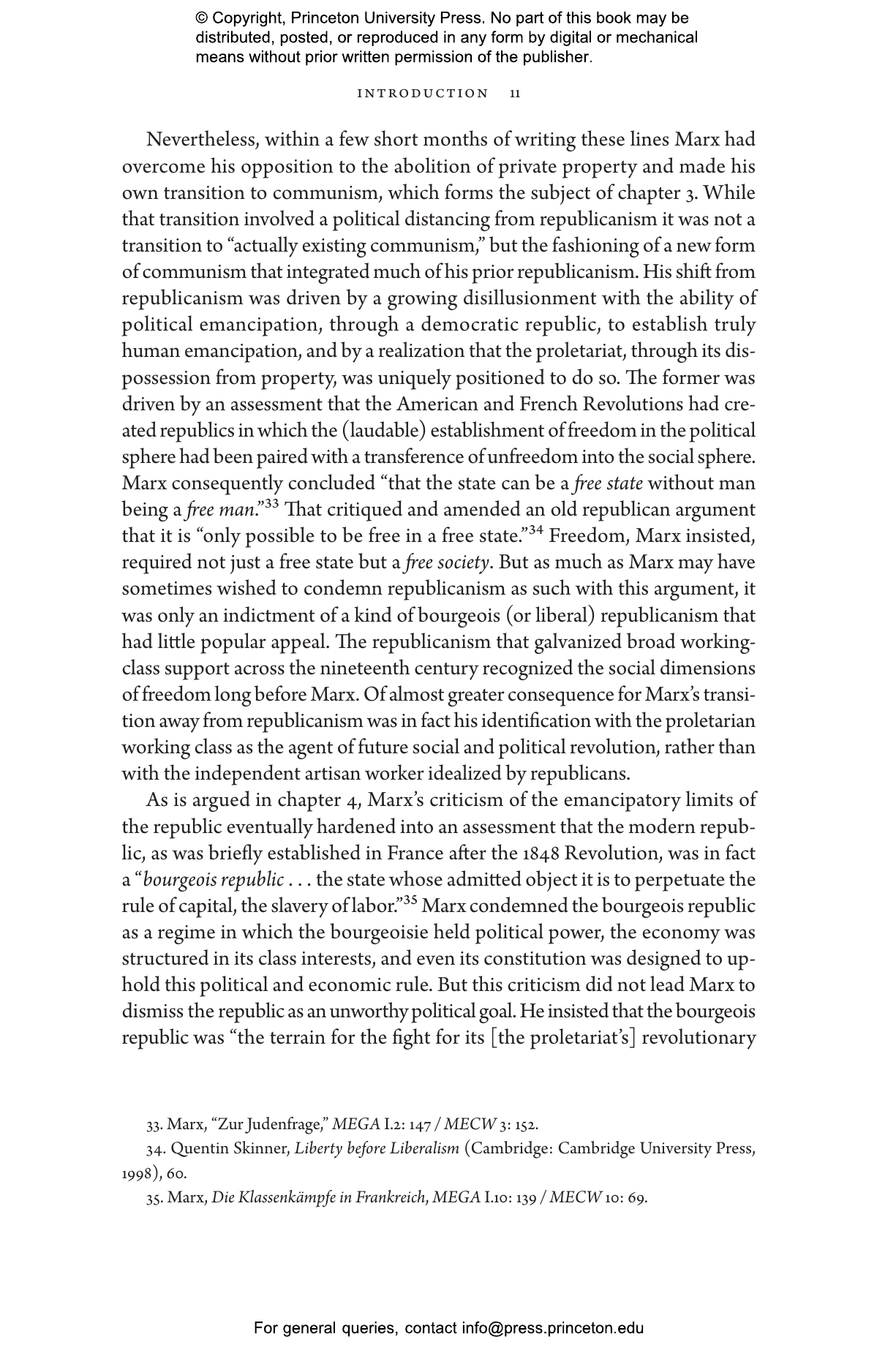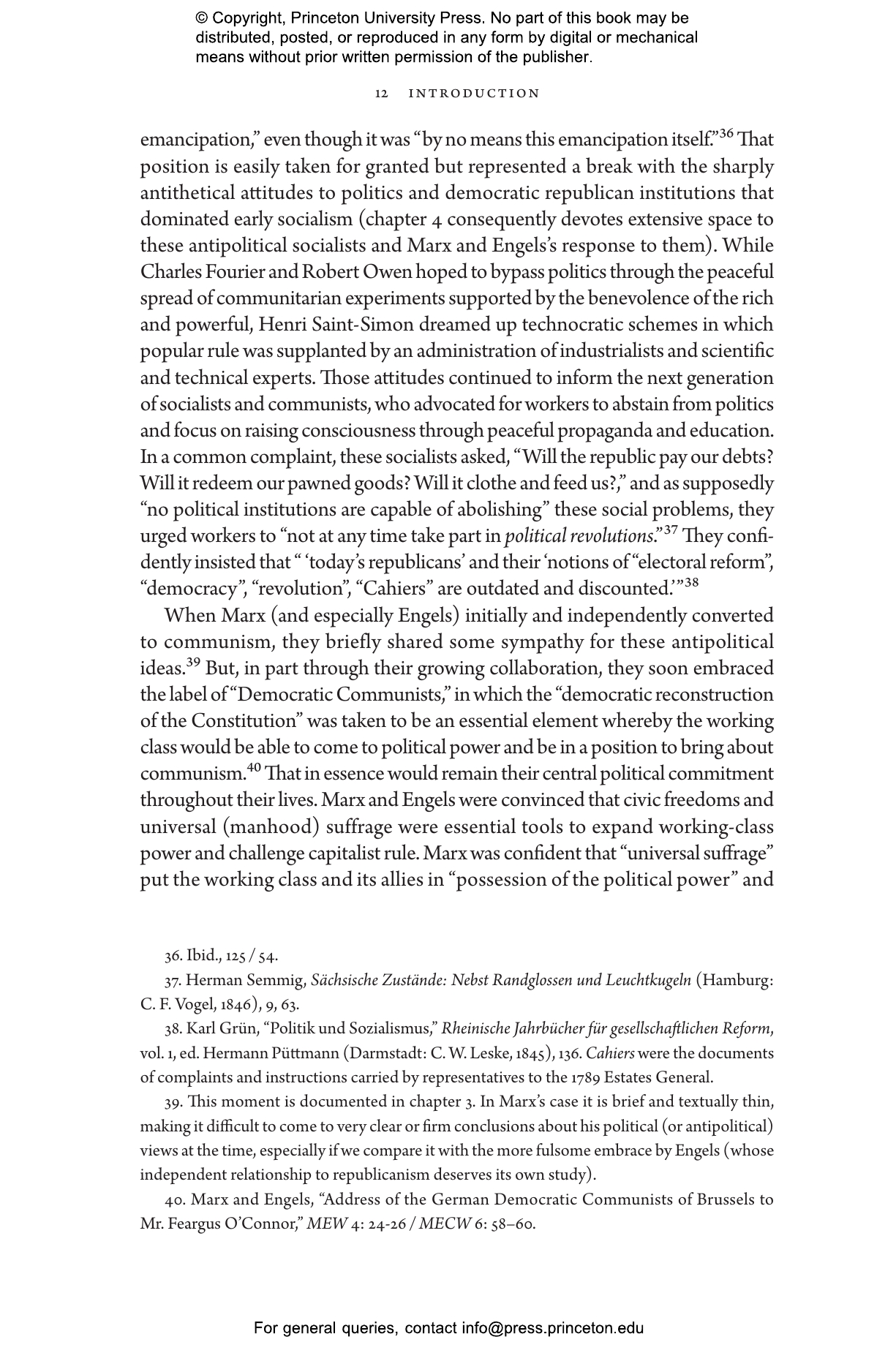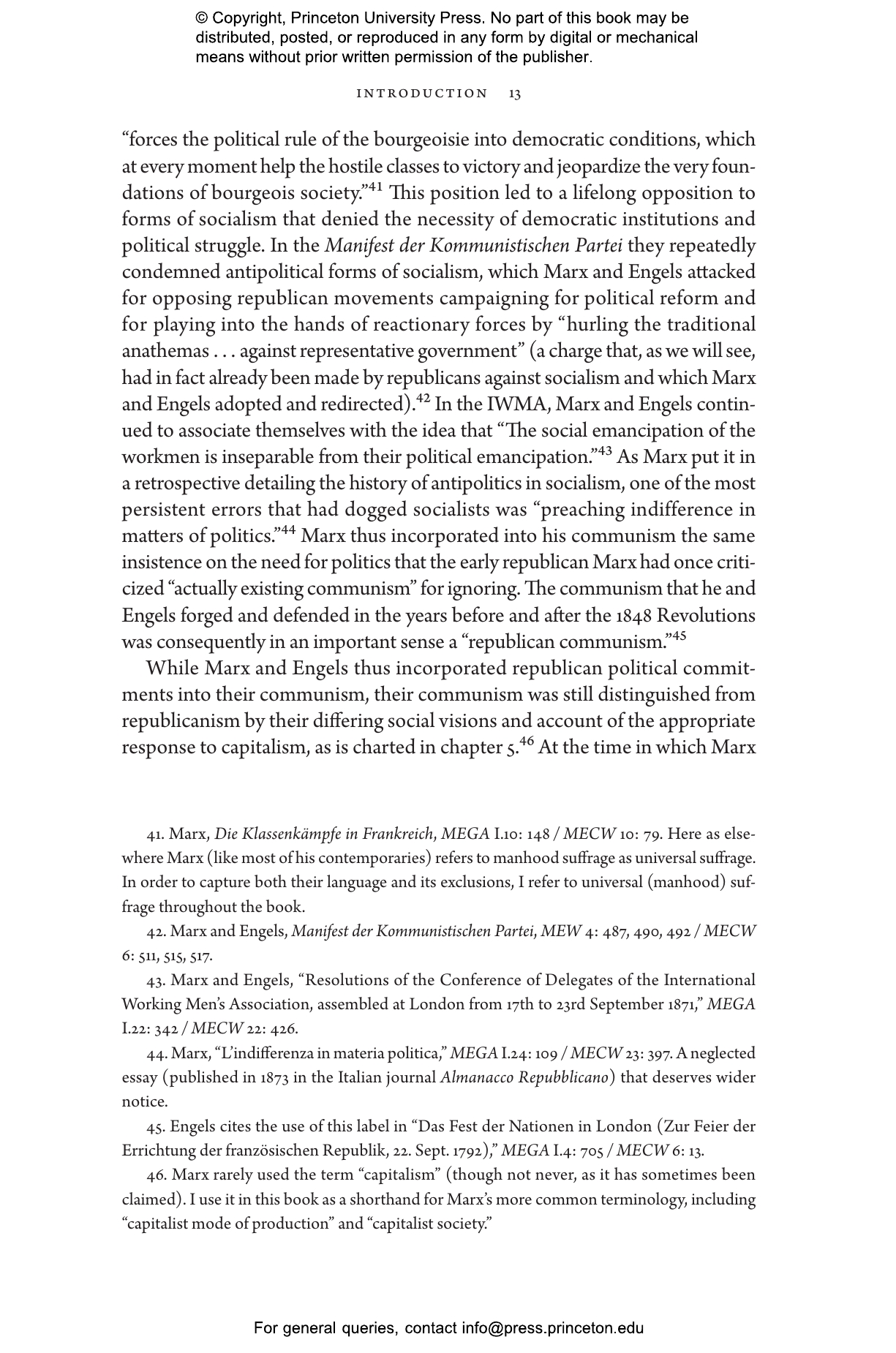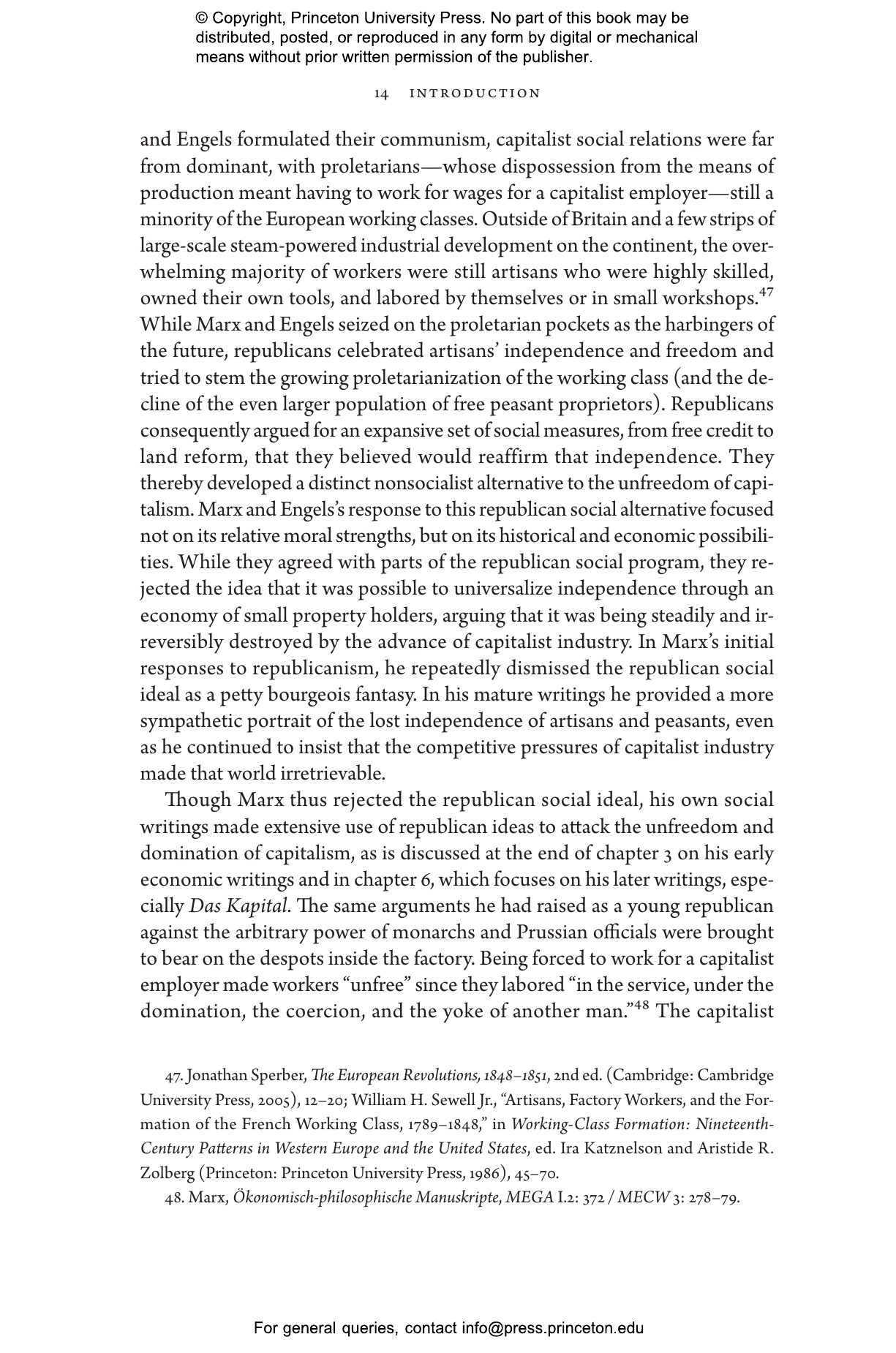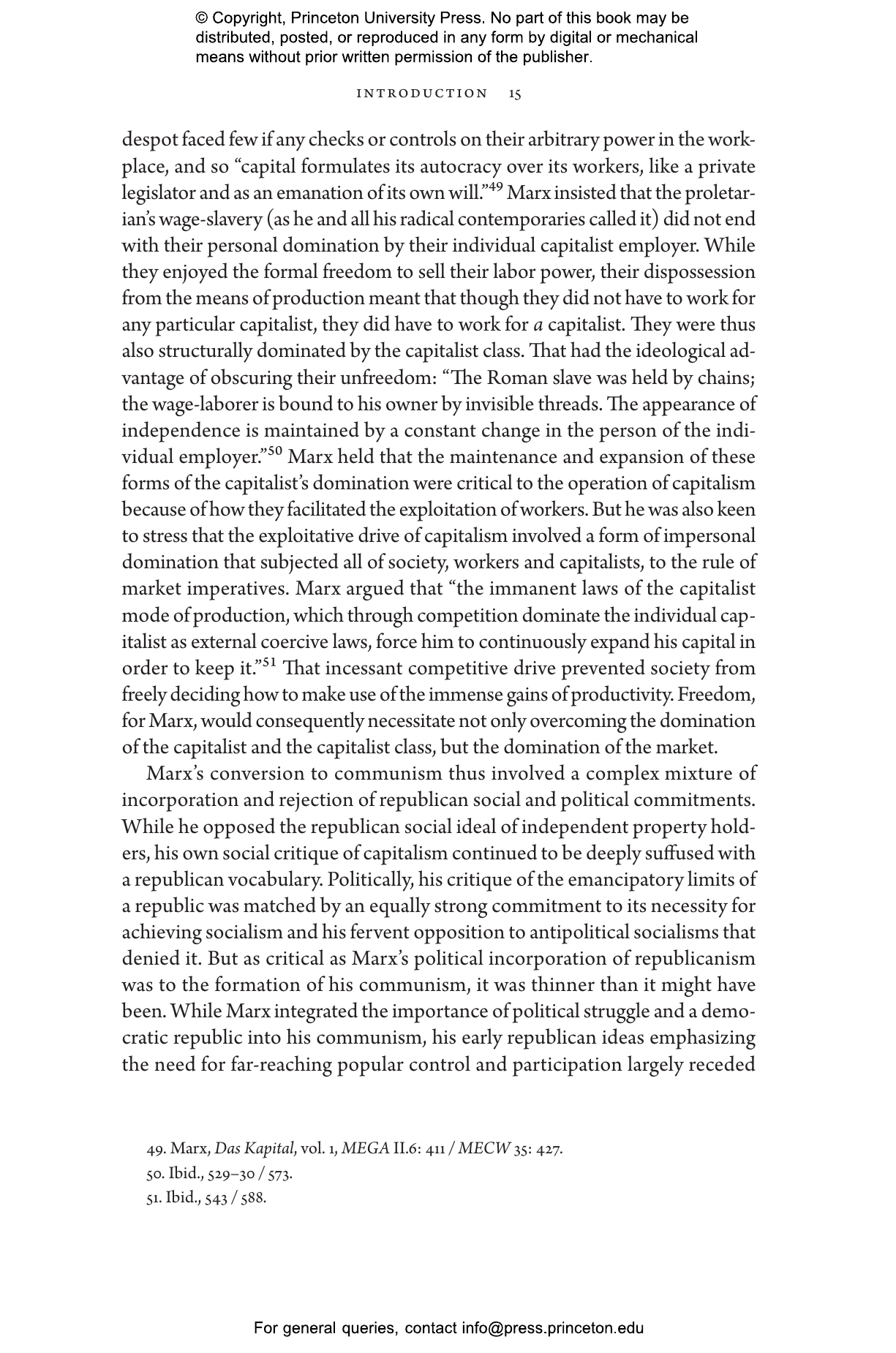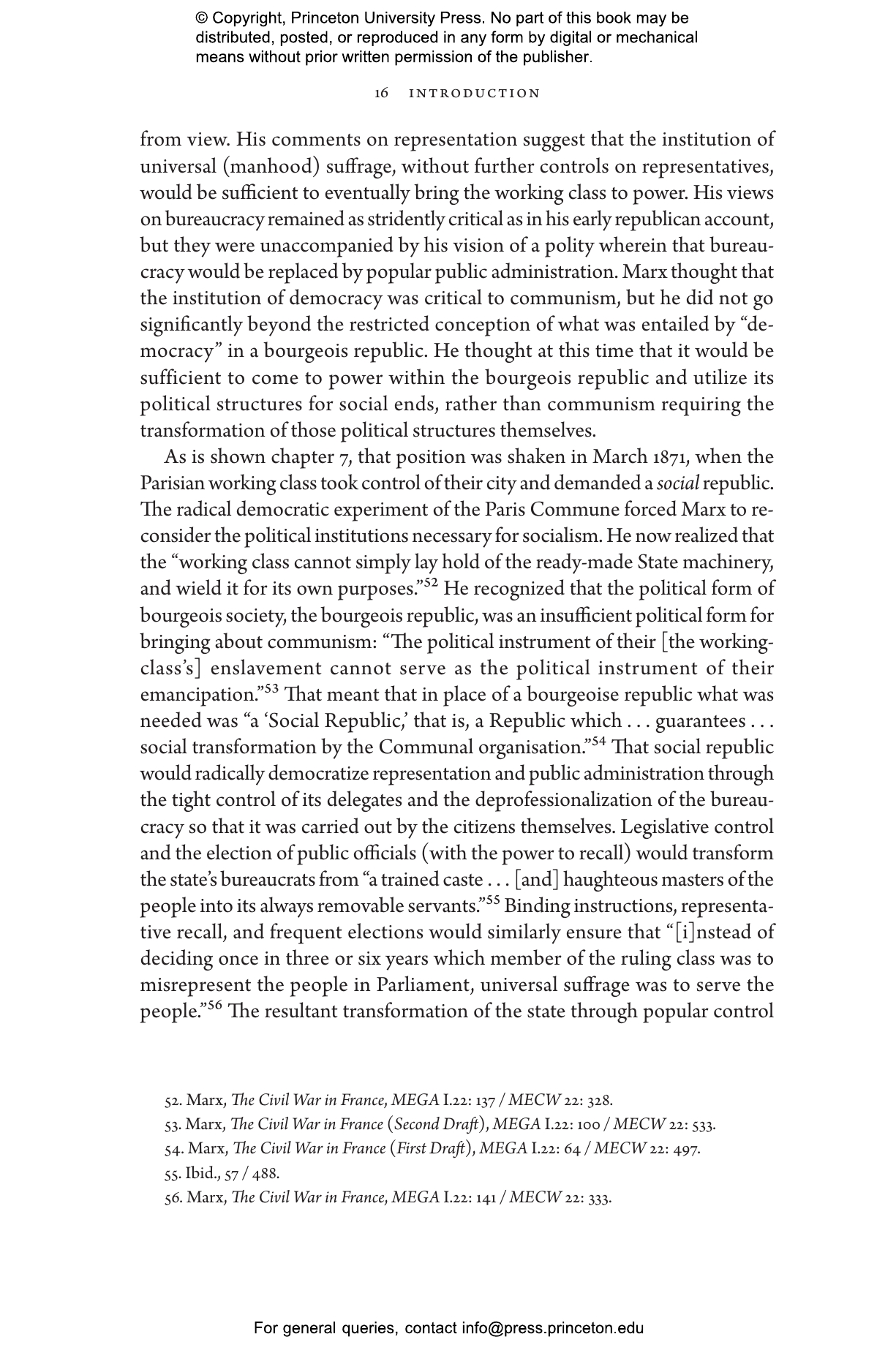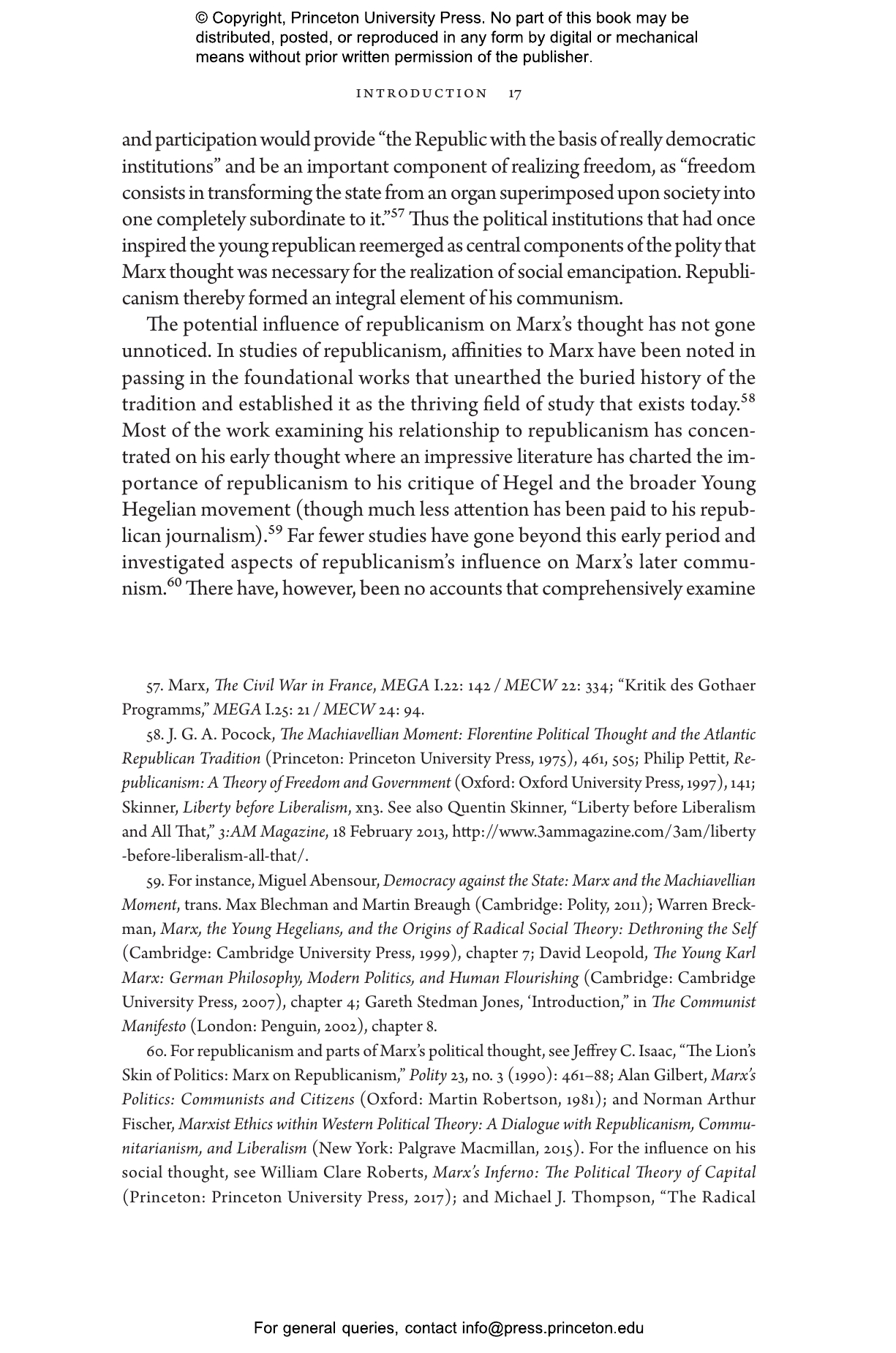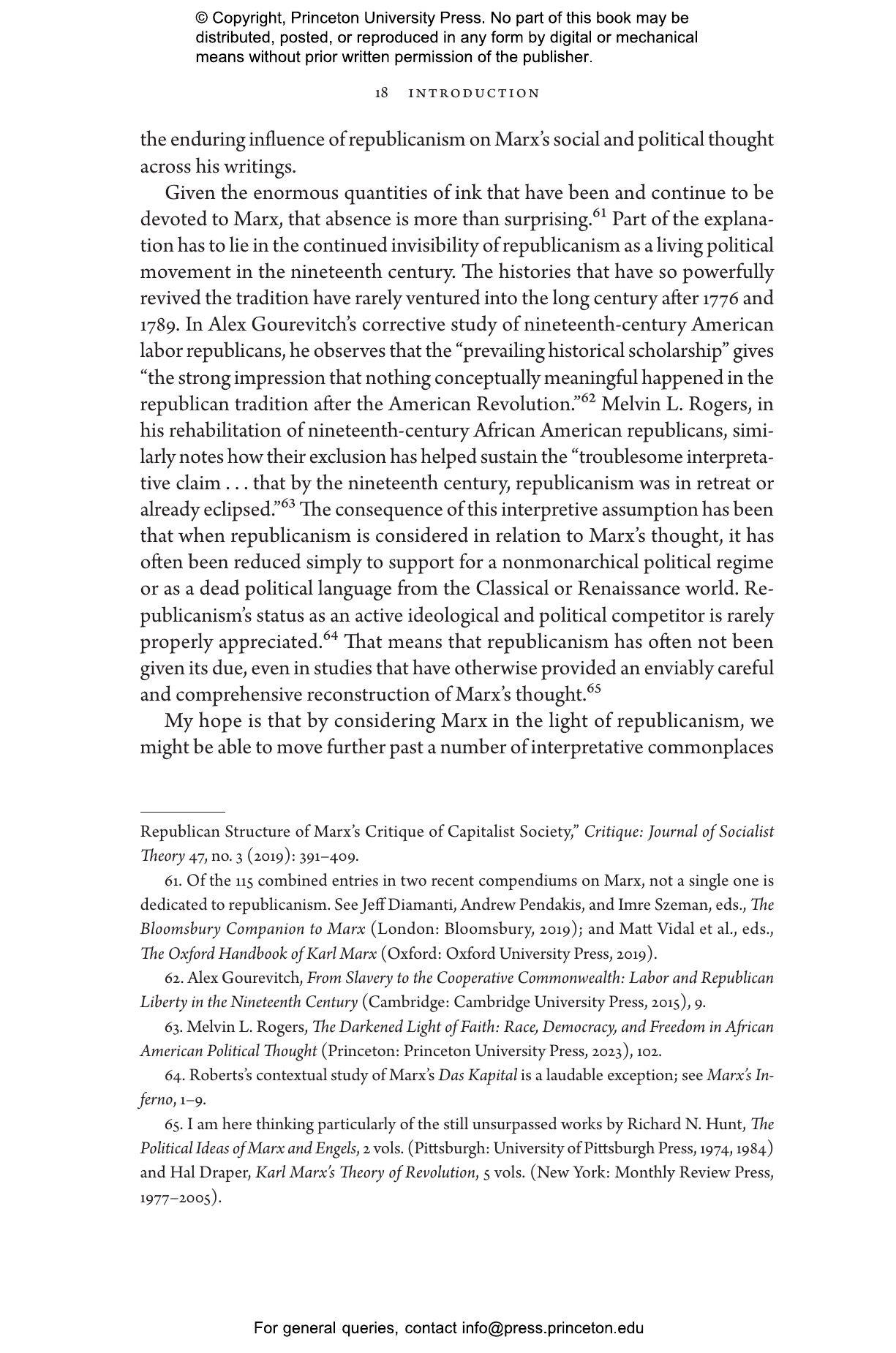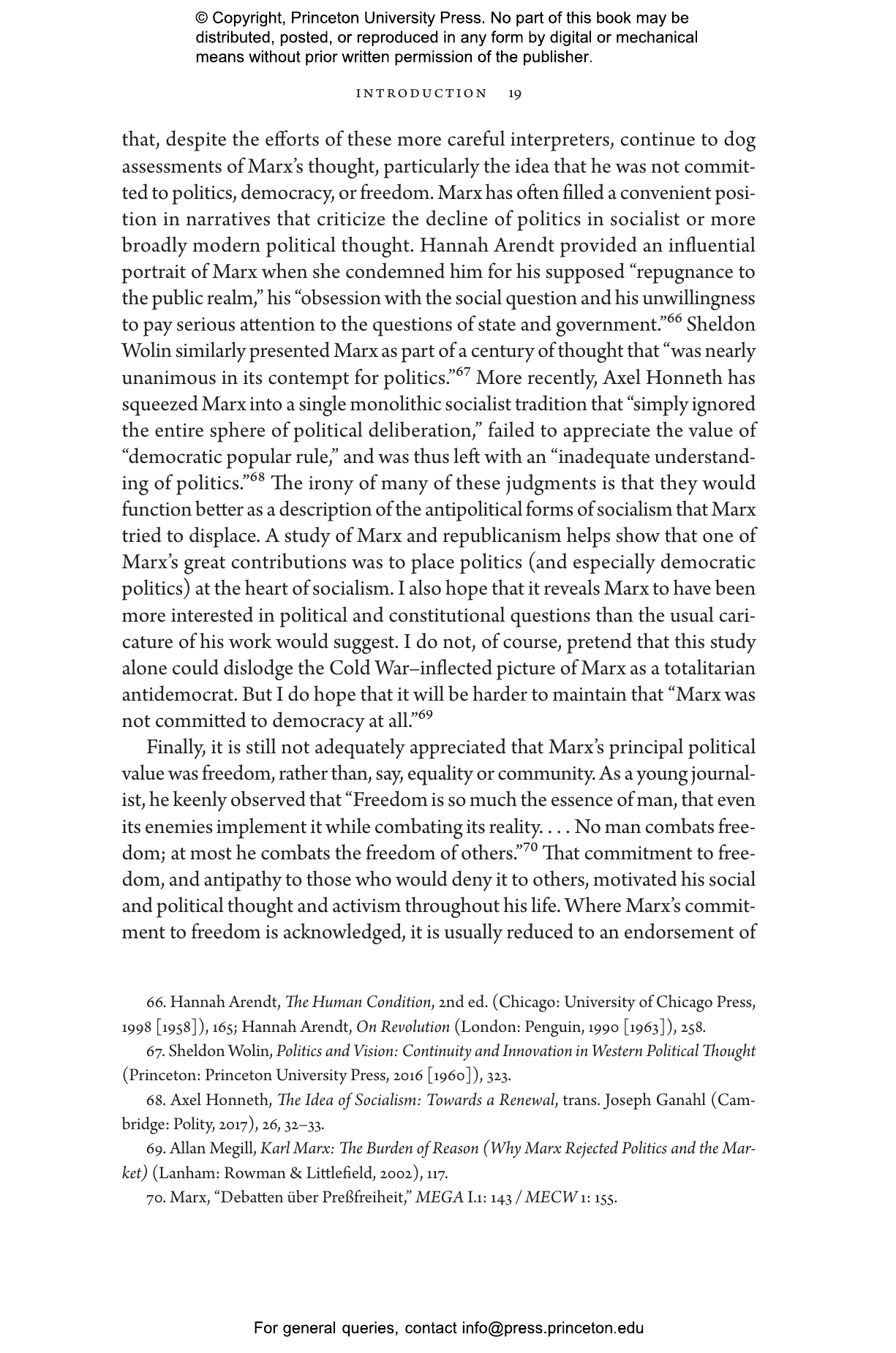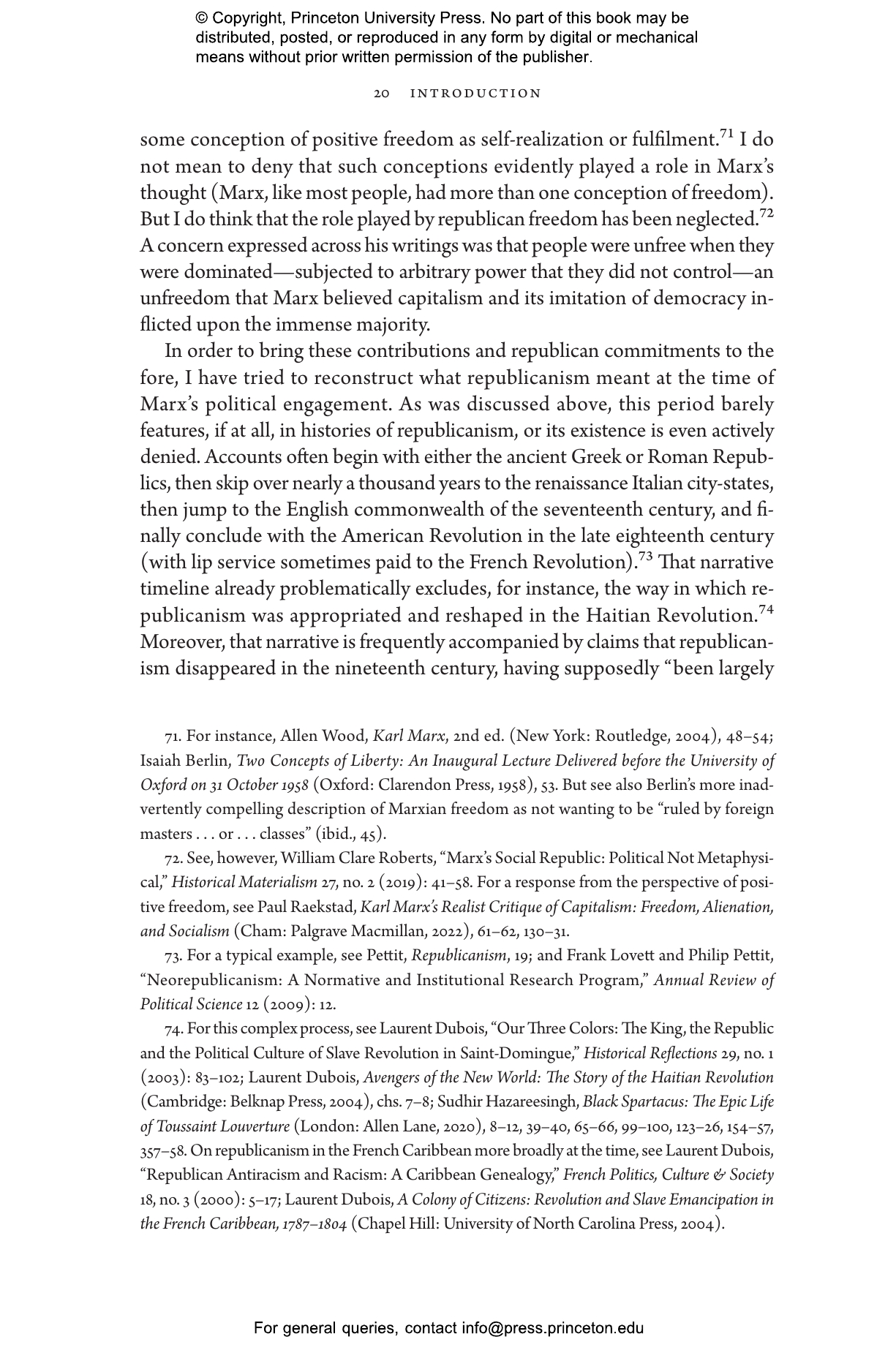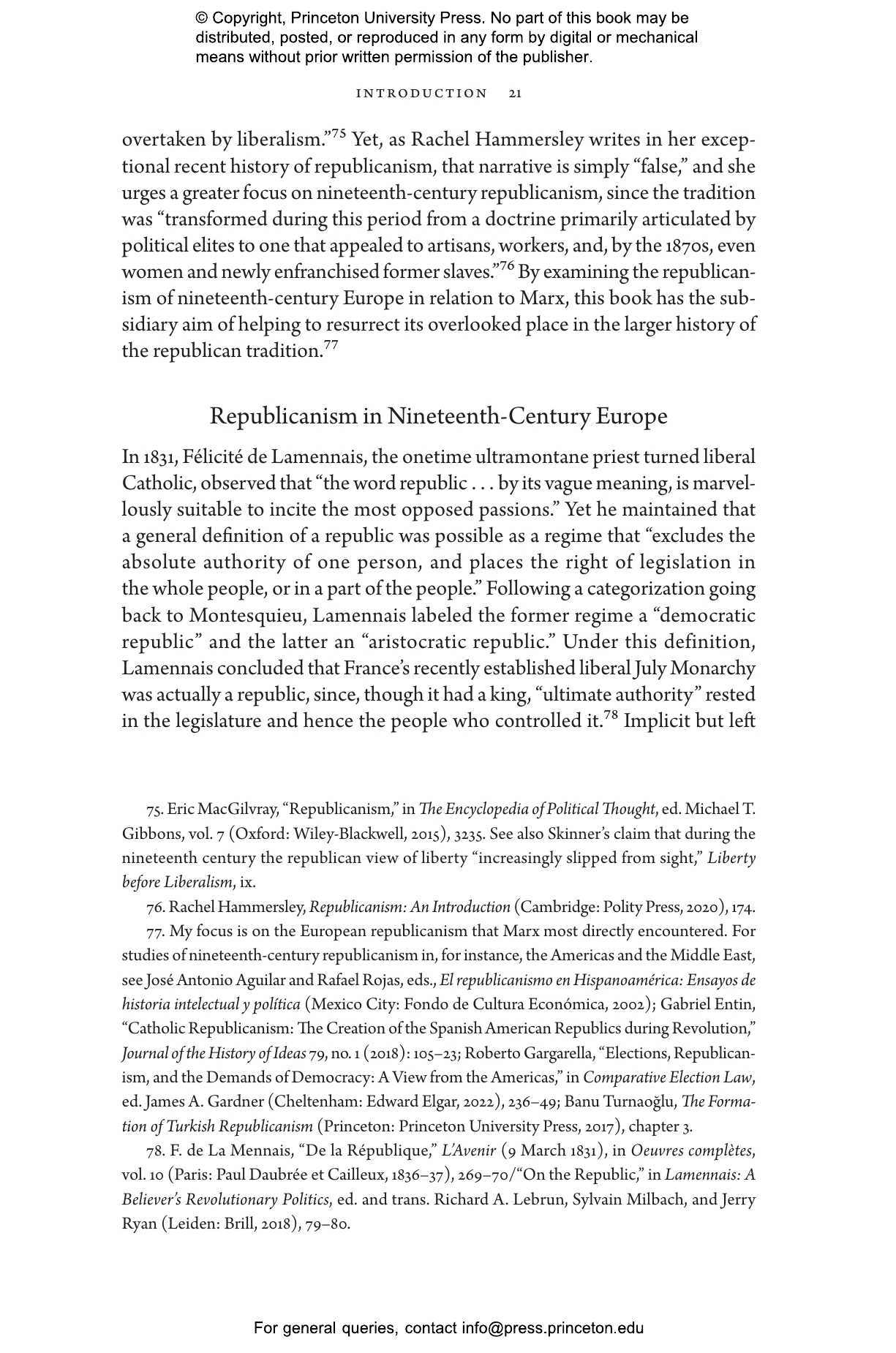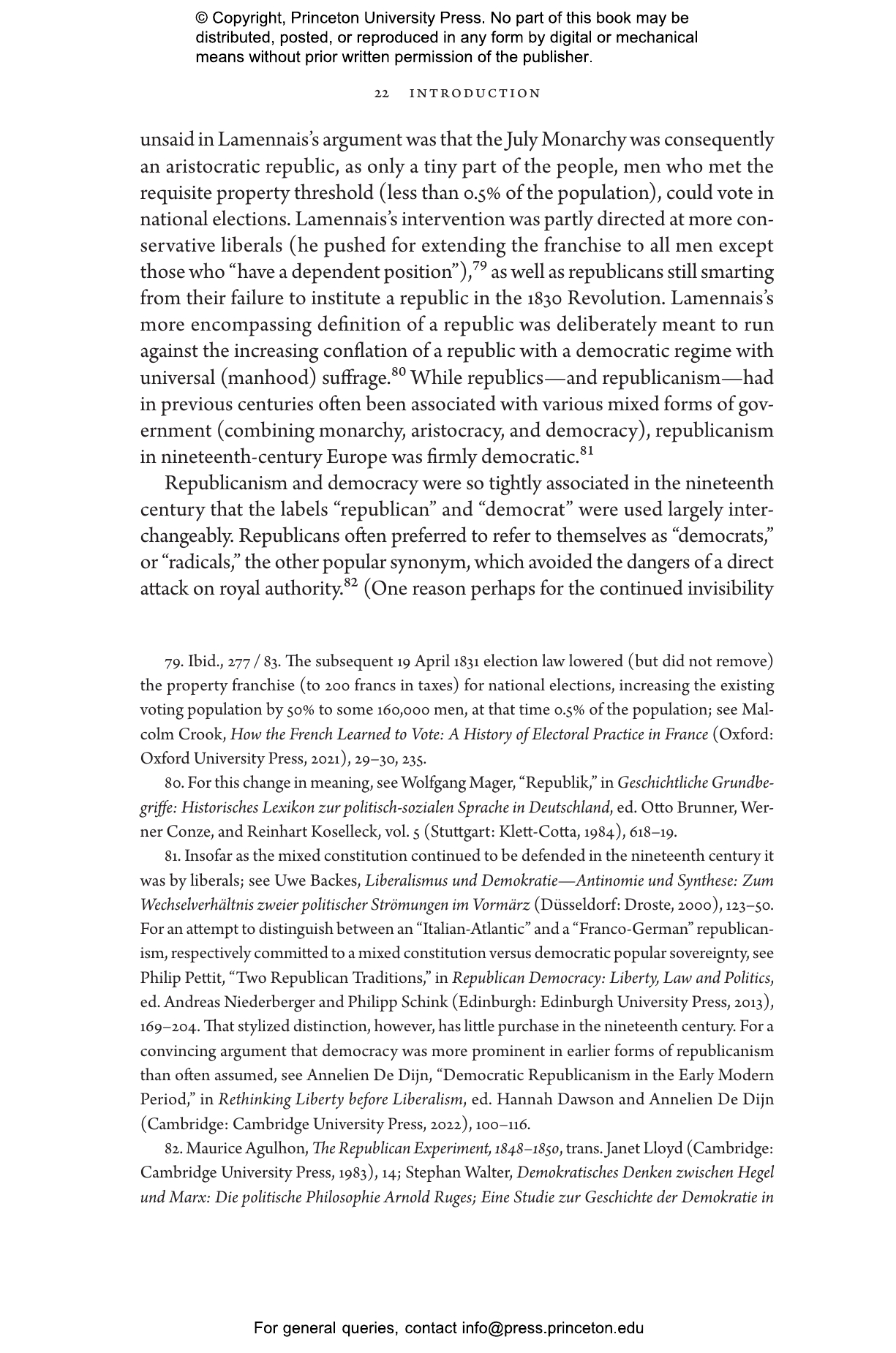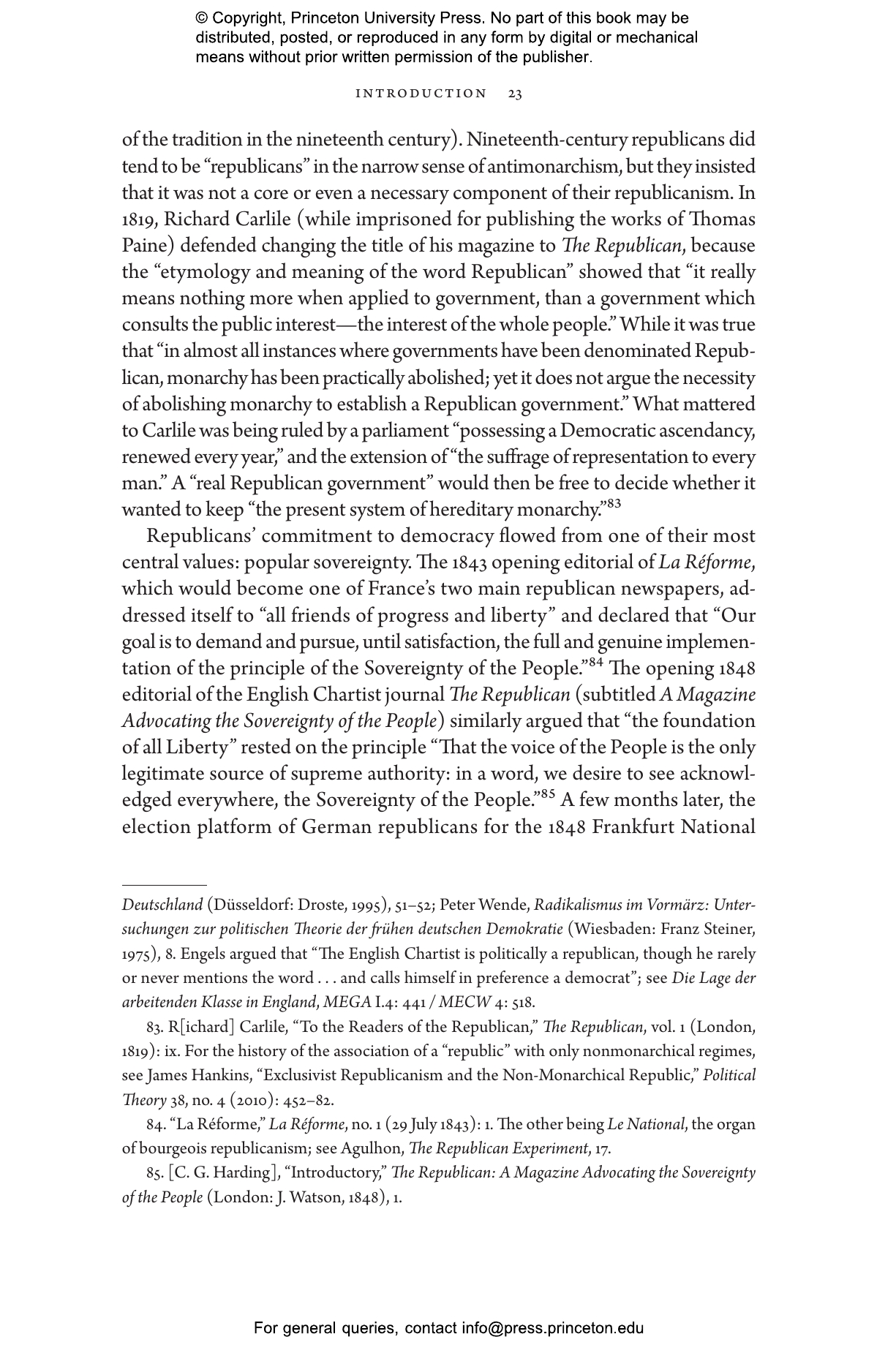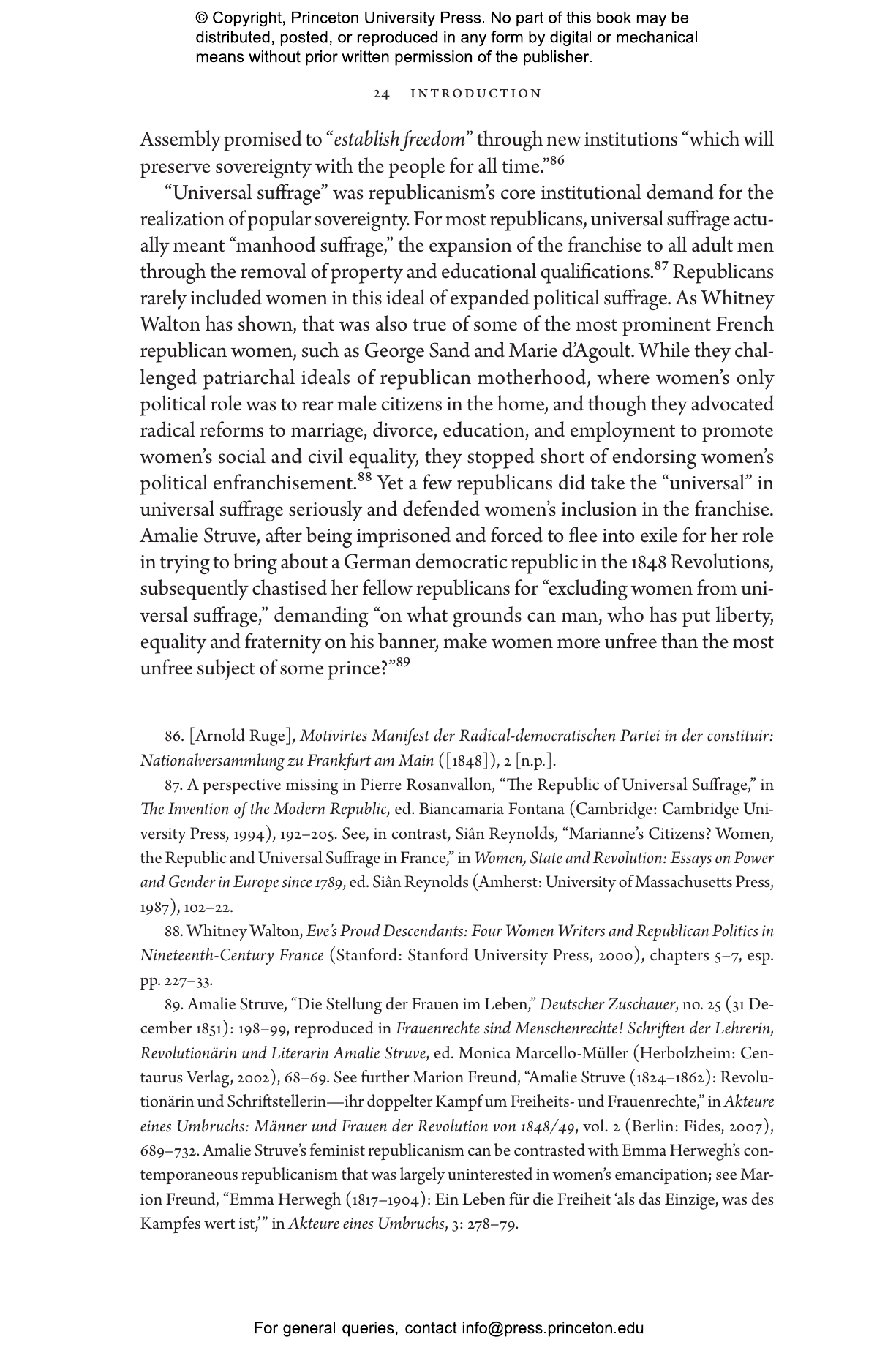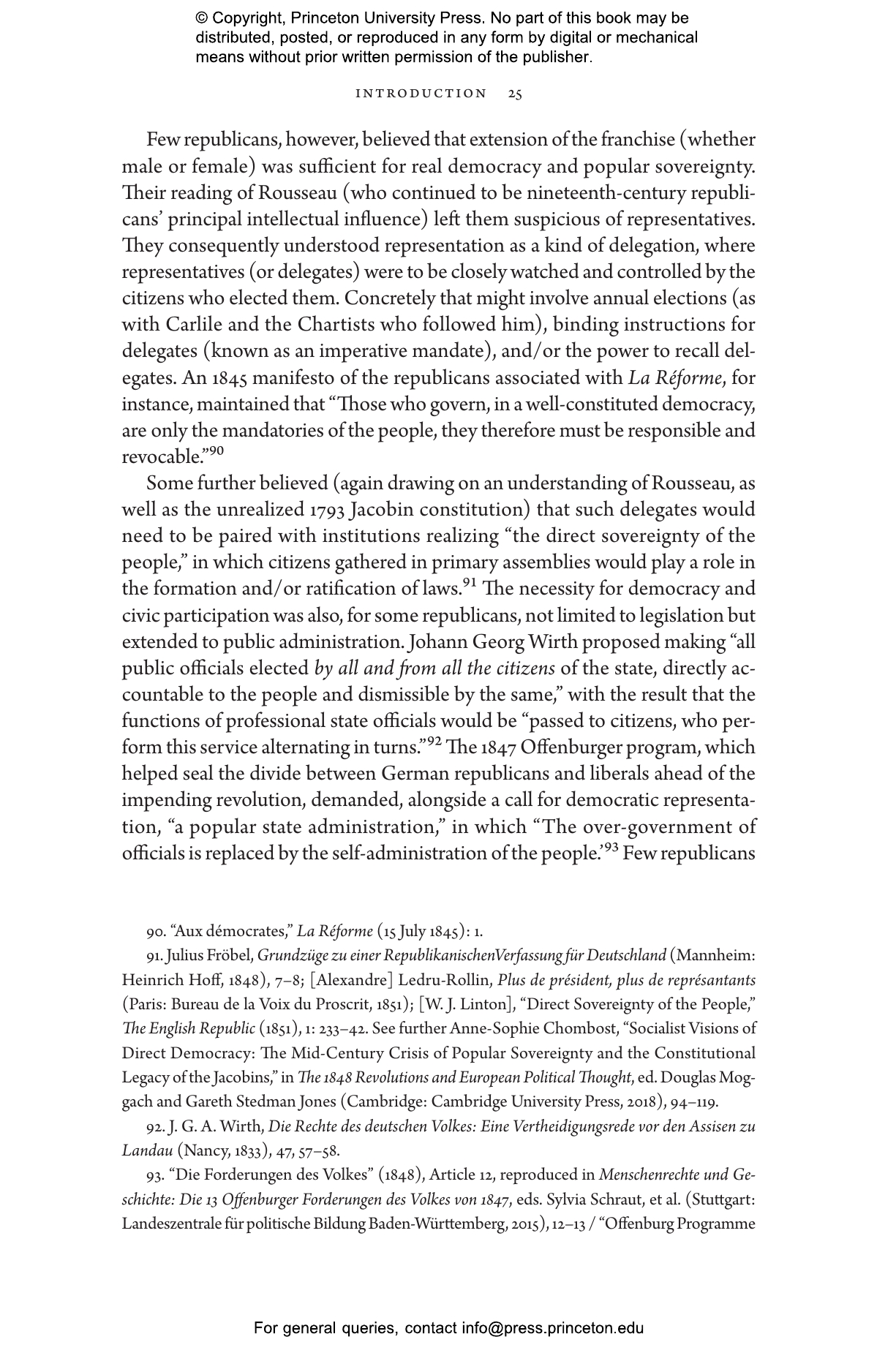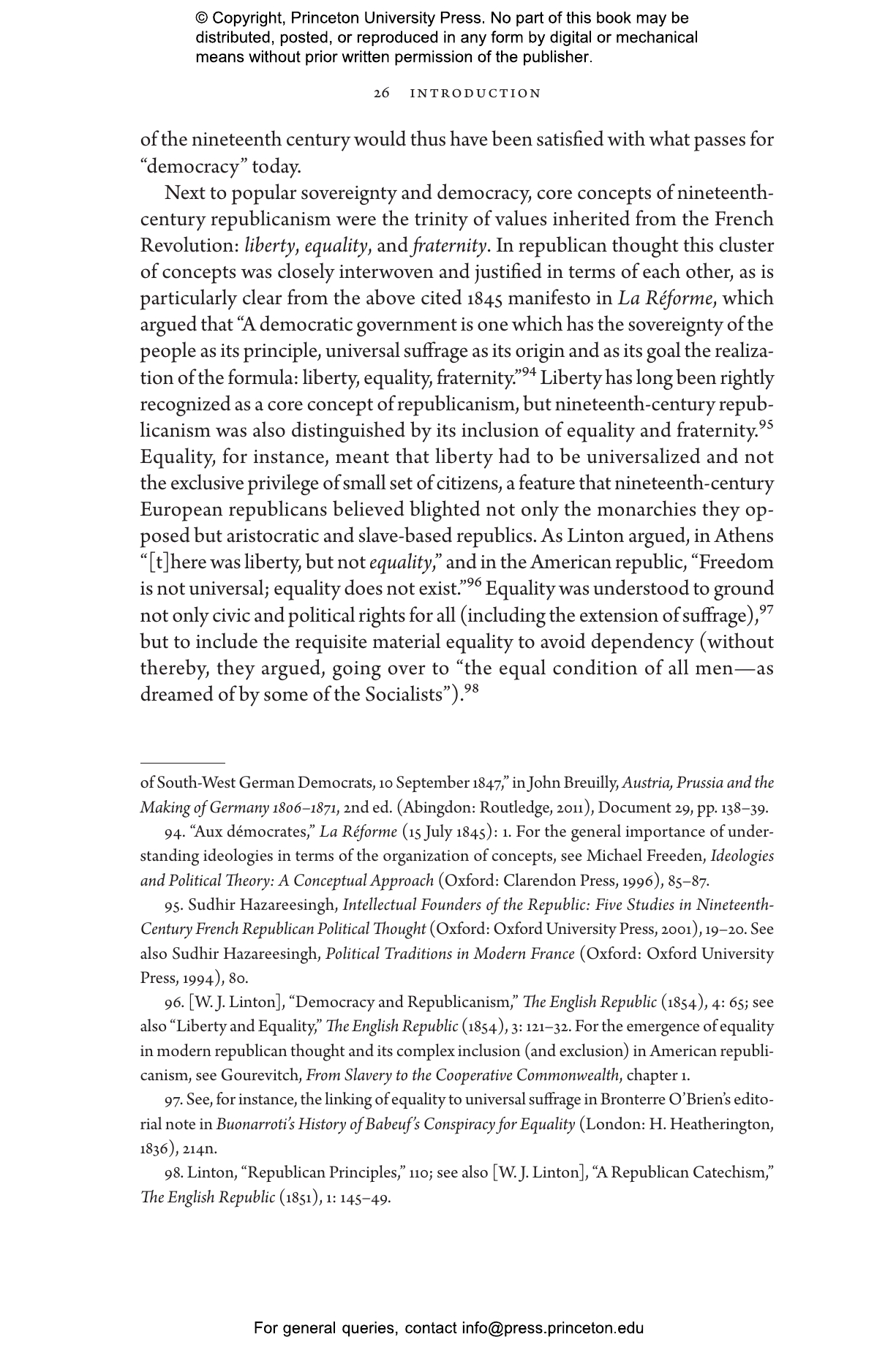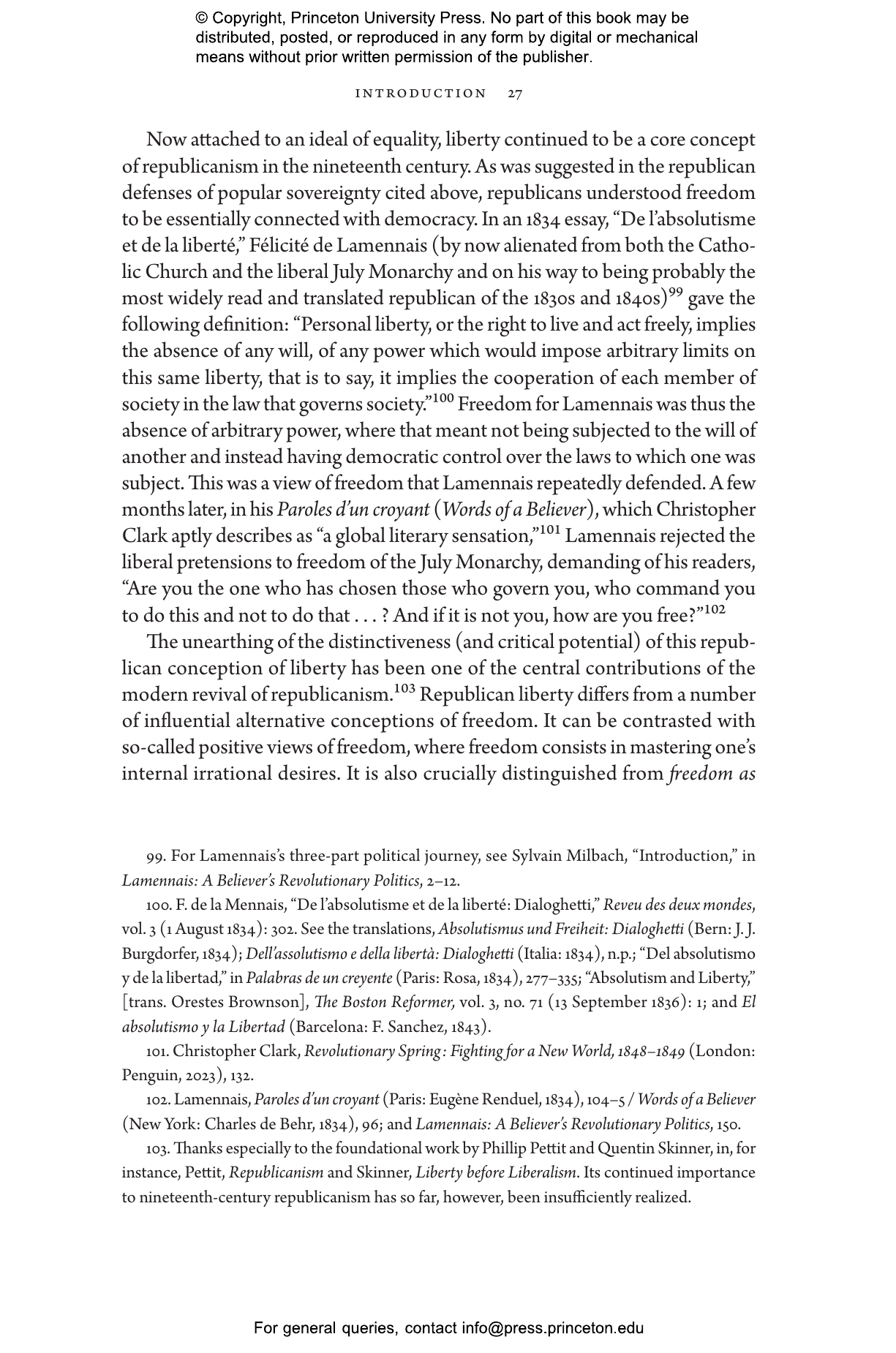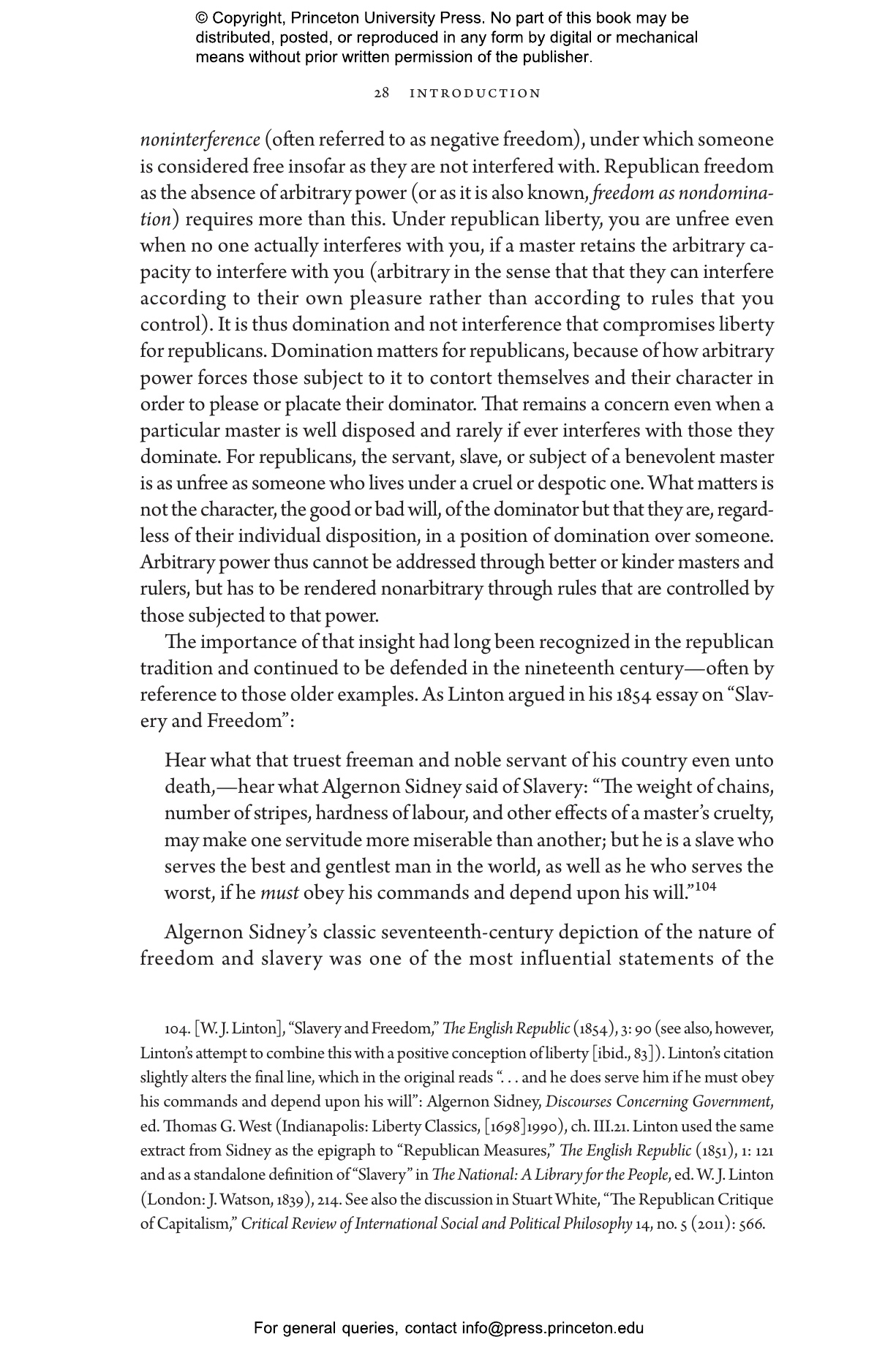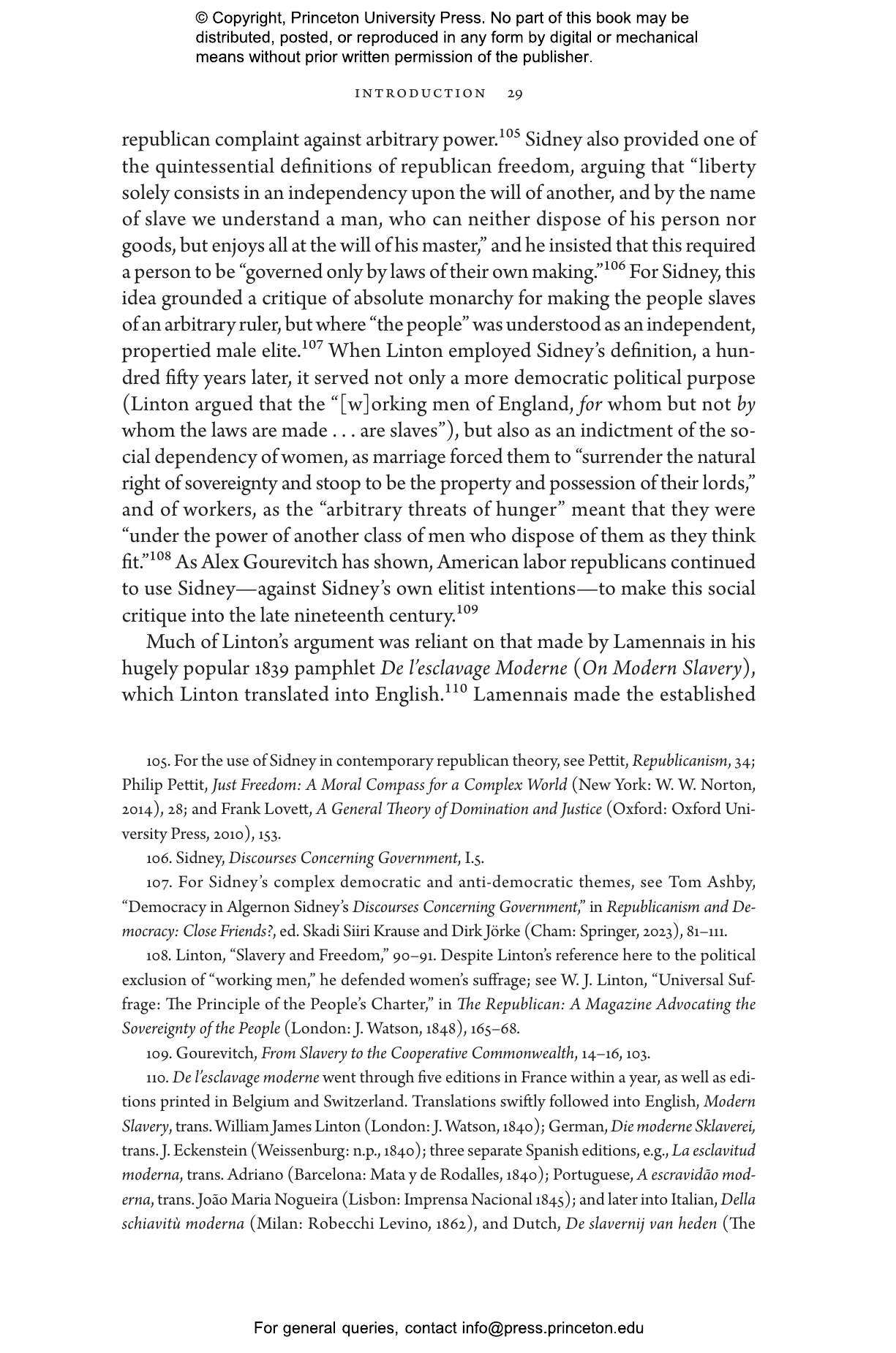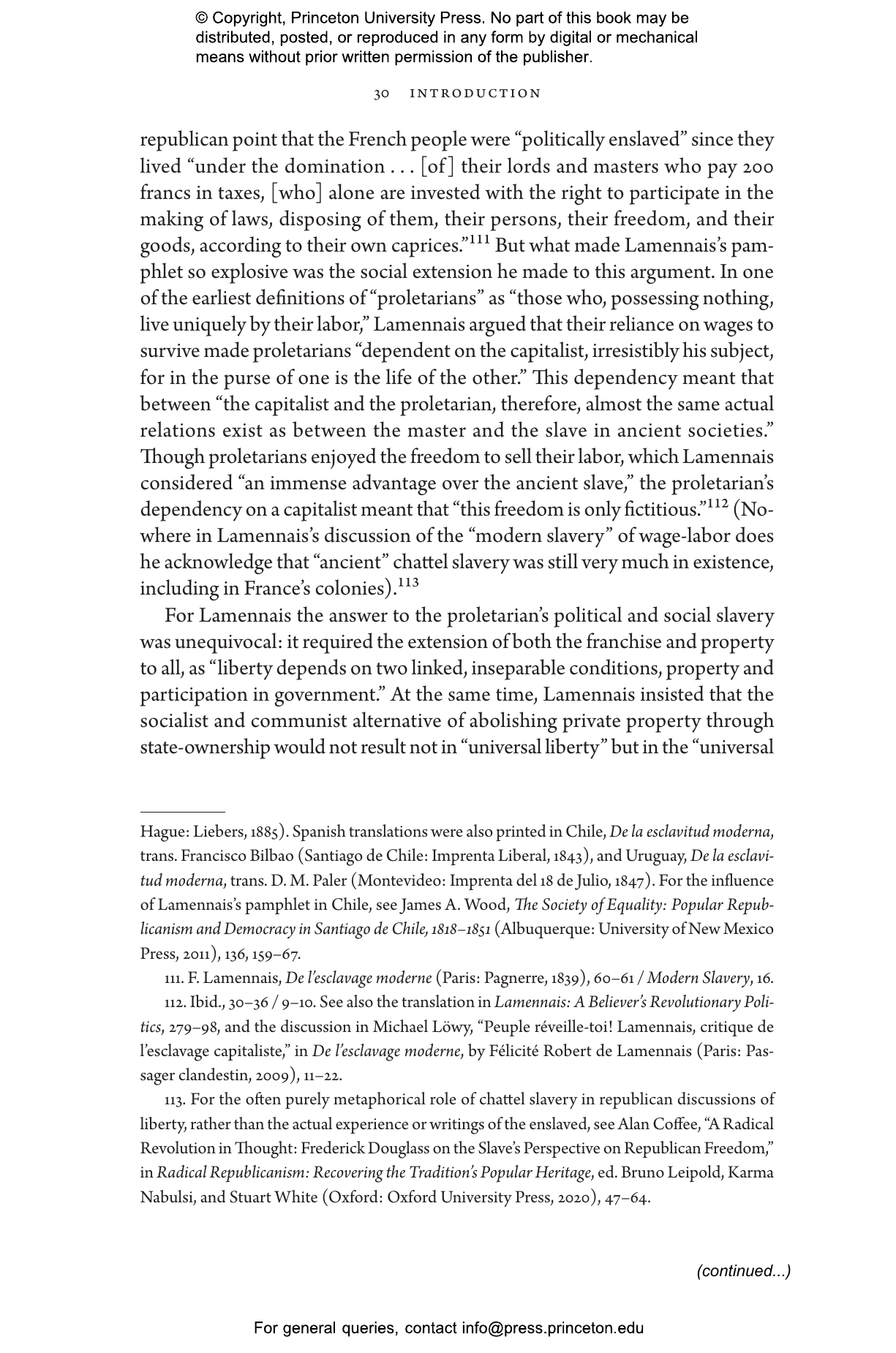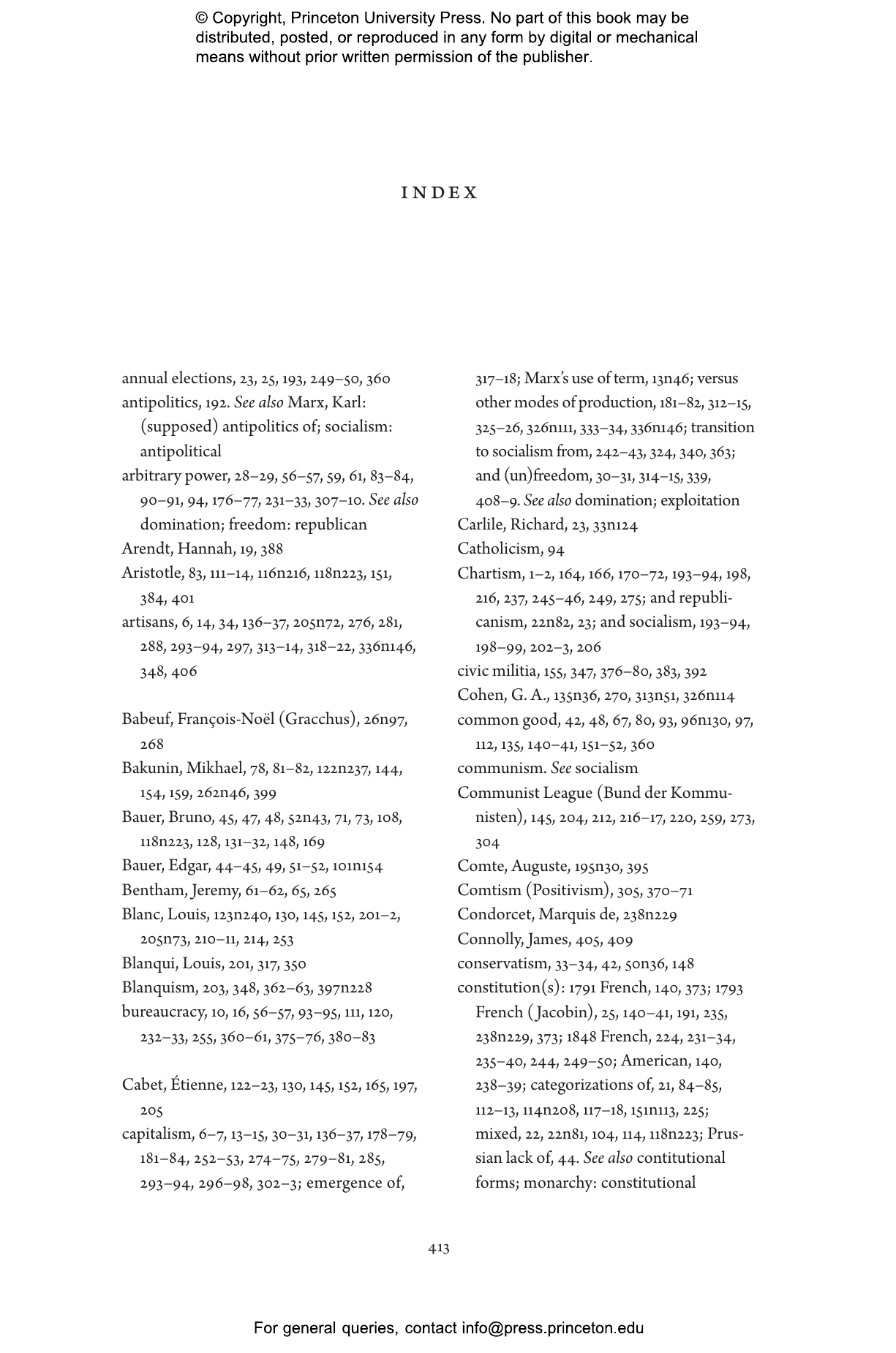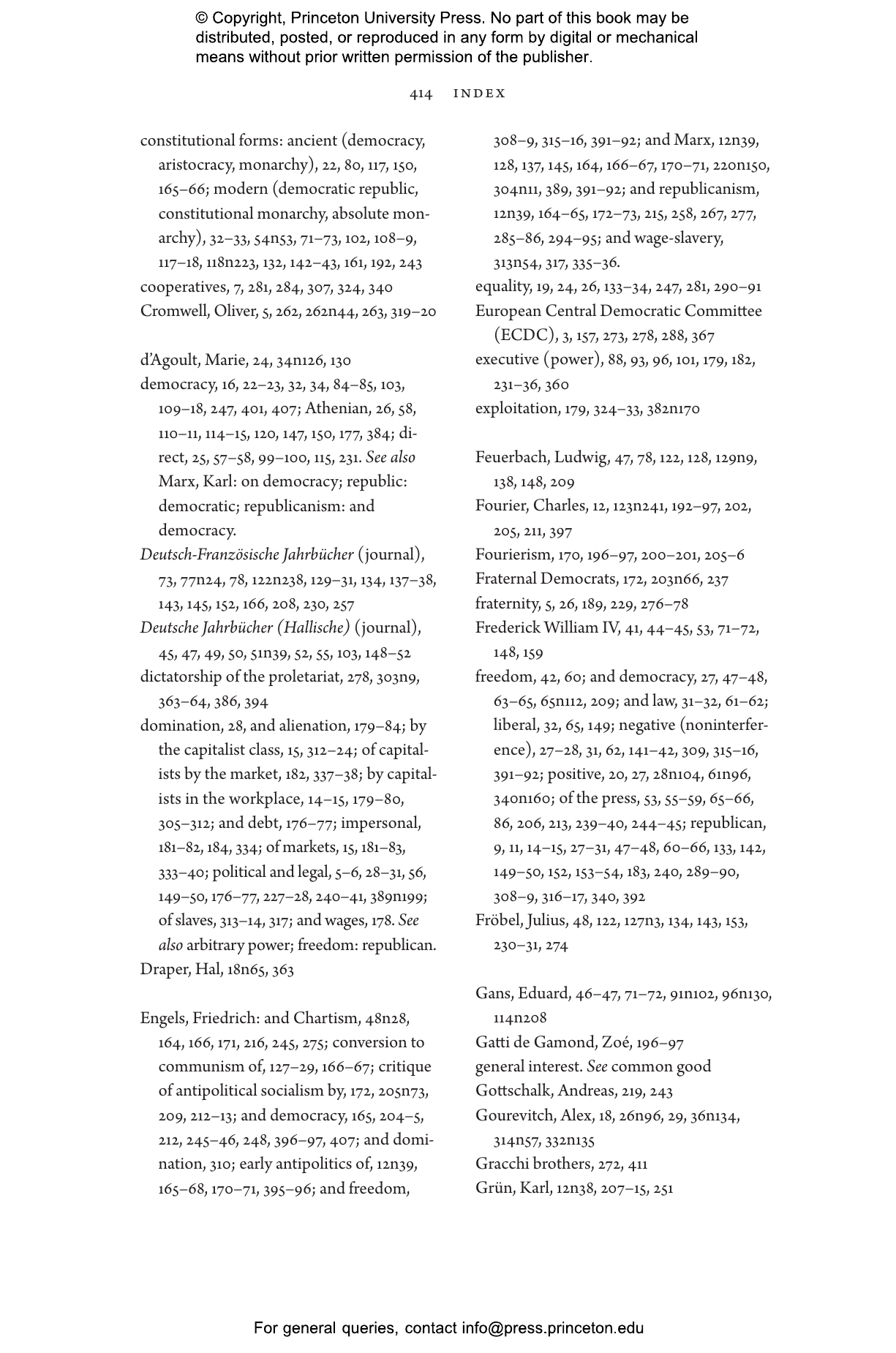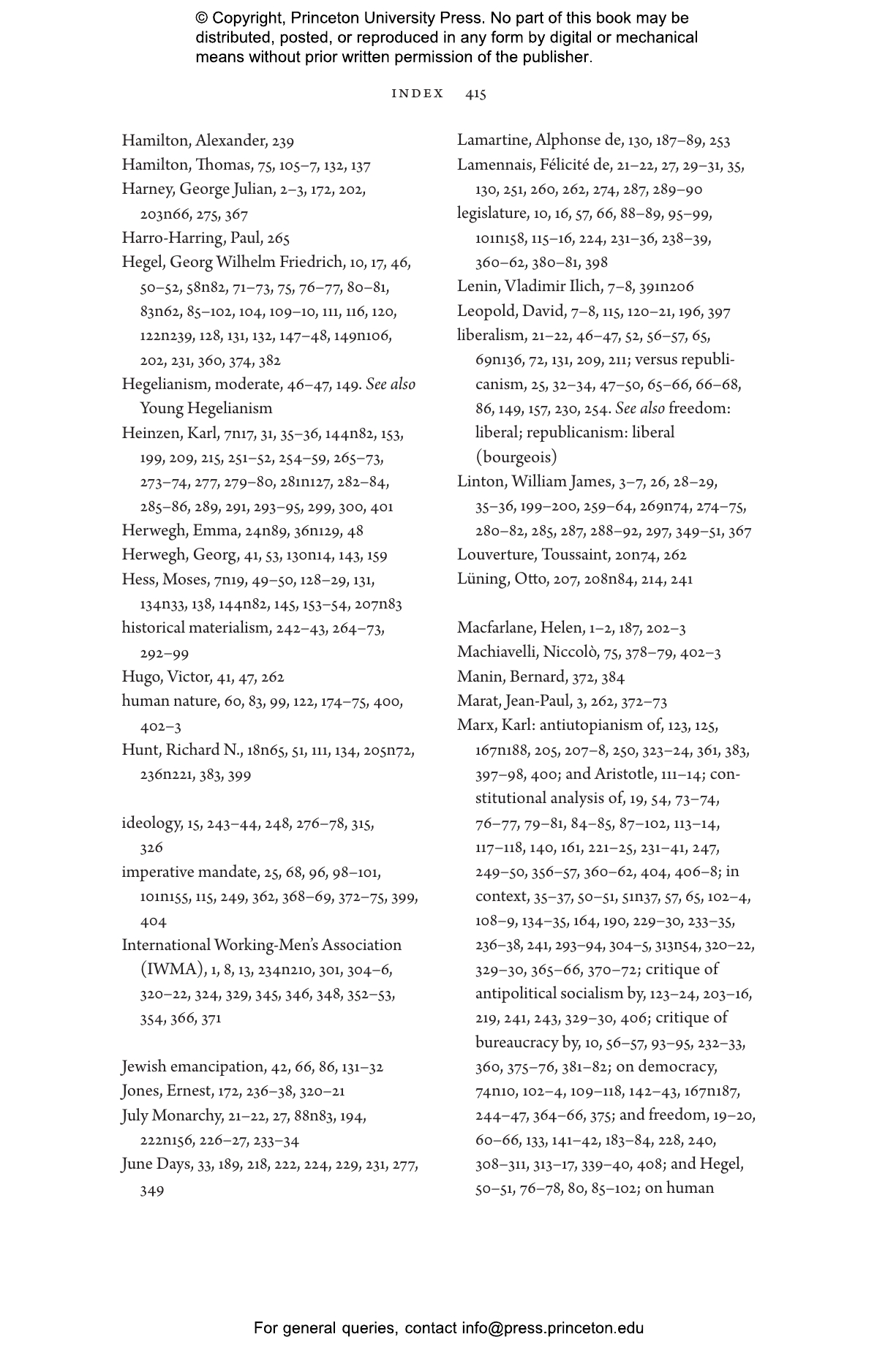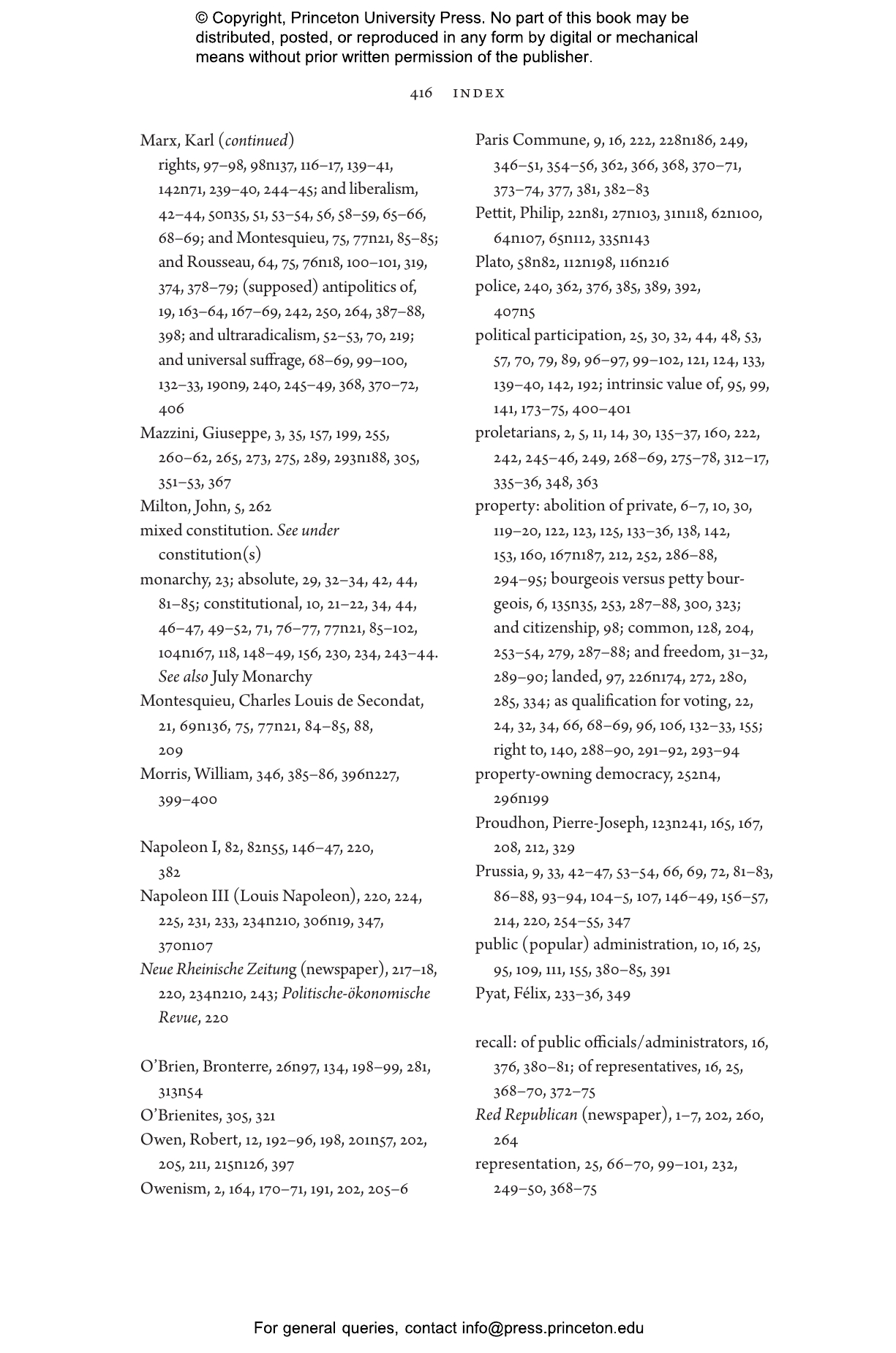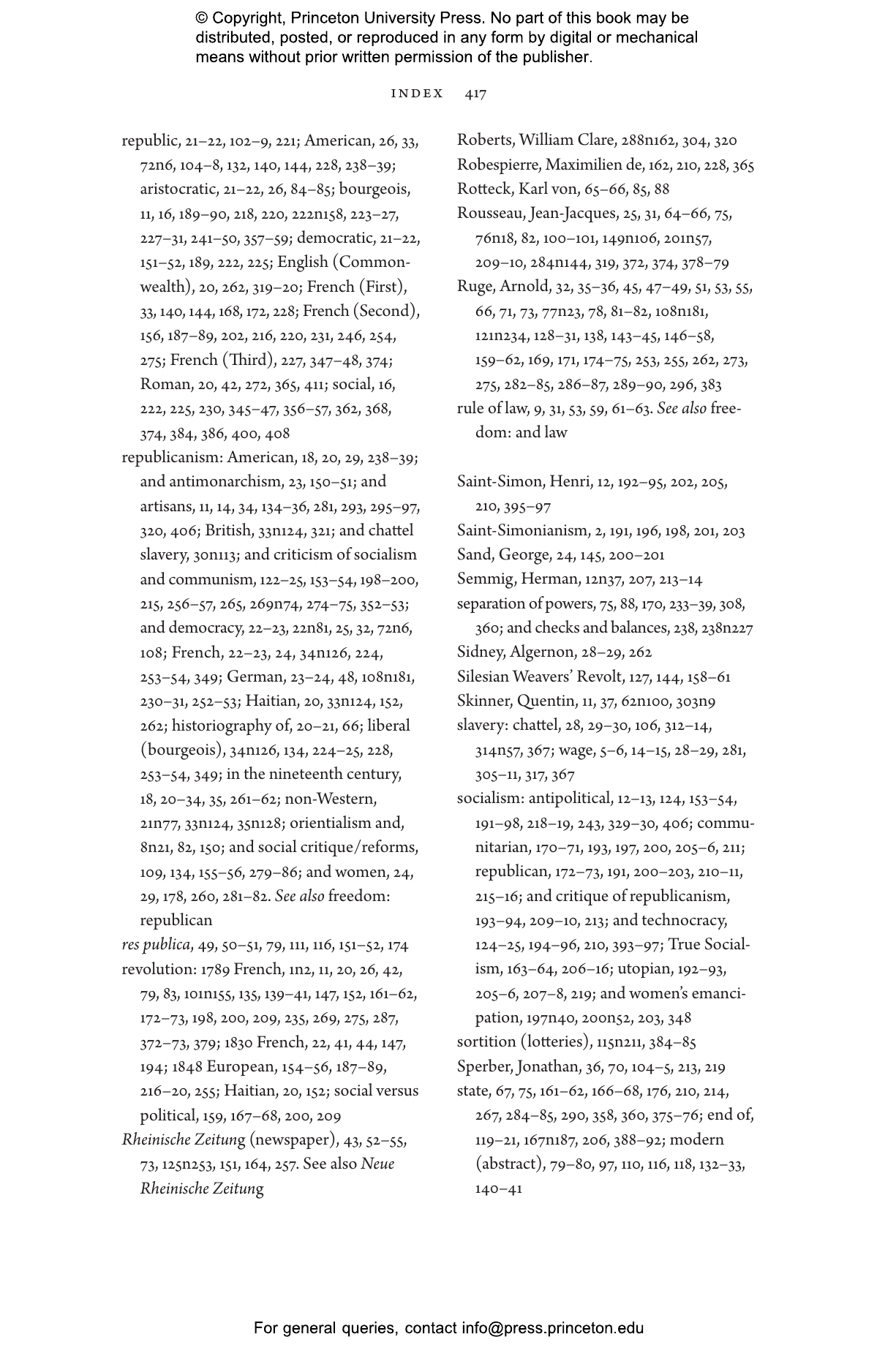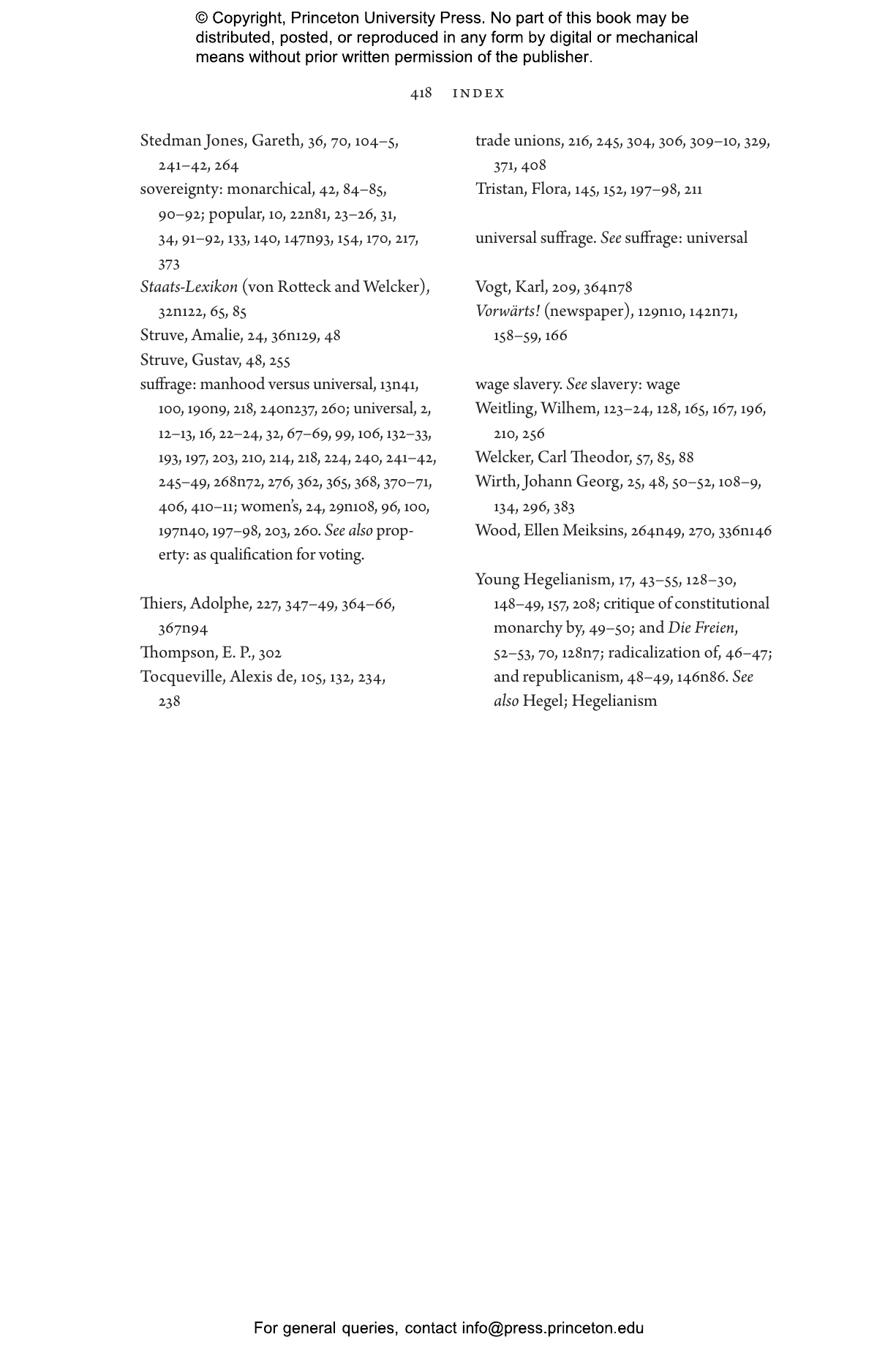In Citizen Marx, Bruno Leipold argues that, contrary to certain interpretive commonplaces, Karl Marx鈥檚 thinking was deeply informed by republicanism. Marx鈥檚 relation to republicanism changed over the course of his life, but its complex influence on his thought cannot be reduced to wholesale adoption or rejection. Challenging common depictions of Marx that downplay or ignore his commitment to politics, democracy, and freedom, Leipold shows that Marx viewed democratic political institutions as crucial to overcoming the social unfreedom and domination of capitalism. One of Marx鈥檚 principal political values, Leipold contends, was a republican conception of freedom, according to which one is unfree when subjected to arbitrary power.
Placing Marx鈥檚 republican communism in its historical context鈥攂ut not consigning him to that context鈥擫eipold traces Marx鈥檚 shifting relationship to republicanism across three broad periods. First, Marx began his political life as a republican committed to a democratic republic in which citizens held active popular sovereignty. Second, he transitioned to communism, criticizing republicanism but incorporating the republican opposition to arbitrary power into his social critiques. He argued that although a democratic republic was not sufficient for emancipation, it was necessary for it. Third, spurred by the events of the Paris Commune of 1871, he came to view popular control in representation and public administration as essential to the realization of communism. Leipold shows how Marx positioned his republican communism to displace both antipolitical socialism and anticommunist republicanism. One of Marx鈥檚 great contributions, Leipold suggests, was to place politics (and especially democratic politics) at the heart of socialism.
Bruno Leipold is a fellow in political theory at the London School of Economics and Political Science.
He is the coeditor of Radical Republicanism: Recovering the Tradition’s Popular Heritage.
“Leipold's book will not only enrich our understanding of Marx and nineteenth-century socialism, but it will also extend and deepen the study of European republicanism. The overall level of original scholarship—textual and contextual—is superb. Citizen Marx will quickly become a standard source for anyone doing research on Marx, socialism, republicanism, nineteenth-century politics, and the Revolutions of 1848.”—William Clare Roberts, author of Marx’s Inferno
“This book is a genuine game-changer for Marx and Engels studies. It does quite a number of highly significant things in a tightly constructed and beautifully written volume. What it does is both methodological and substantive, and in that way it reorients the whole field.”—Terrell Carver, author of Marx
“This is an exemplary study of Marx, which stands out for the clarity and originality of its analysis, for the depth of its engagement with historical sources in multiple languages, and for shedding light on Marx’s debates with once prominent but now forgotten republican interlocutors and their importance to contemporary theories of freedom. It will return attention to political questions that have long been marginalized in interpretations of Marx.” —Lea Ypi, author of Free
“A bold new interpretation of Karl Marx's ideas. By uncovering the extent to which Marx was indebted to radical republicanism, this book upends existing scholarship on this major thinker. Essential reading for anyone interested in the history of socialism.”—Annelien de Dijn, author of Freedom: An Unruly History
“The long-supposed political lacuna in Marx’s philosophy has now been filled. Bruno Leipold shows definitively that Marx’s social and economic theories entailed a robust political vision to be realized in a ‘true democracy,’ where citizens engage each other as fully equal participants in a ‘social republic.’ The institutional details of Marx’s conception of citizen self-rule have never before been articulated as clearly as in Citizen Marx.”—John P. McCormick, author of Reading Machiavelli
“One of the best studies of the development of Marx’s political ideas since Richard Hunt’s and Hal Draper’s now half-century-old classics. It turns out that Lenin’s description of Marx as a fusion of British political economy, French socialism, and German idealism was incomplete. Leipold shows us that Marx was always and also a committed republican, concerned with freedom from arbitrary power, the institutions of a radical democracy, and the possibility of overcoming domination through politics. A book of wide interest for those who want to know not just what Marx thought but what Marxist politics might mean today.”—Alex Gourevitch, author of From Slavery to the Cooperative Commonwealth: Labor and Republican Liberty in the Nineteenth Century


